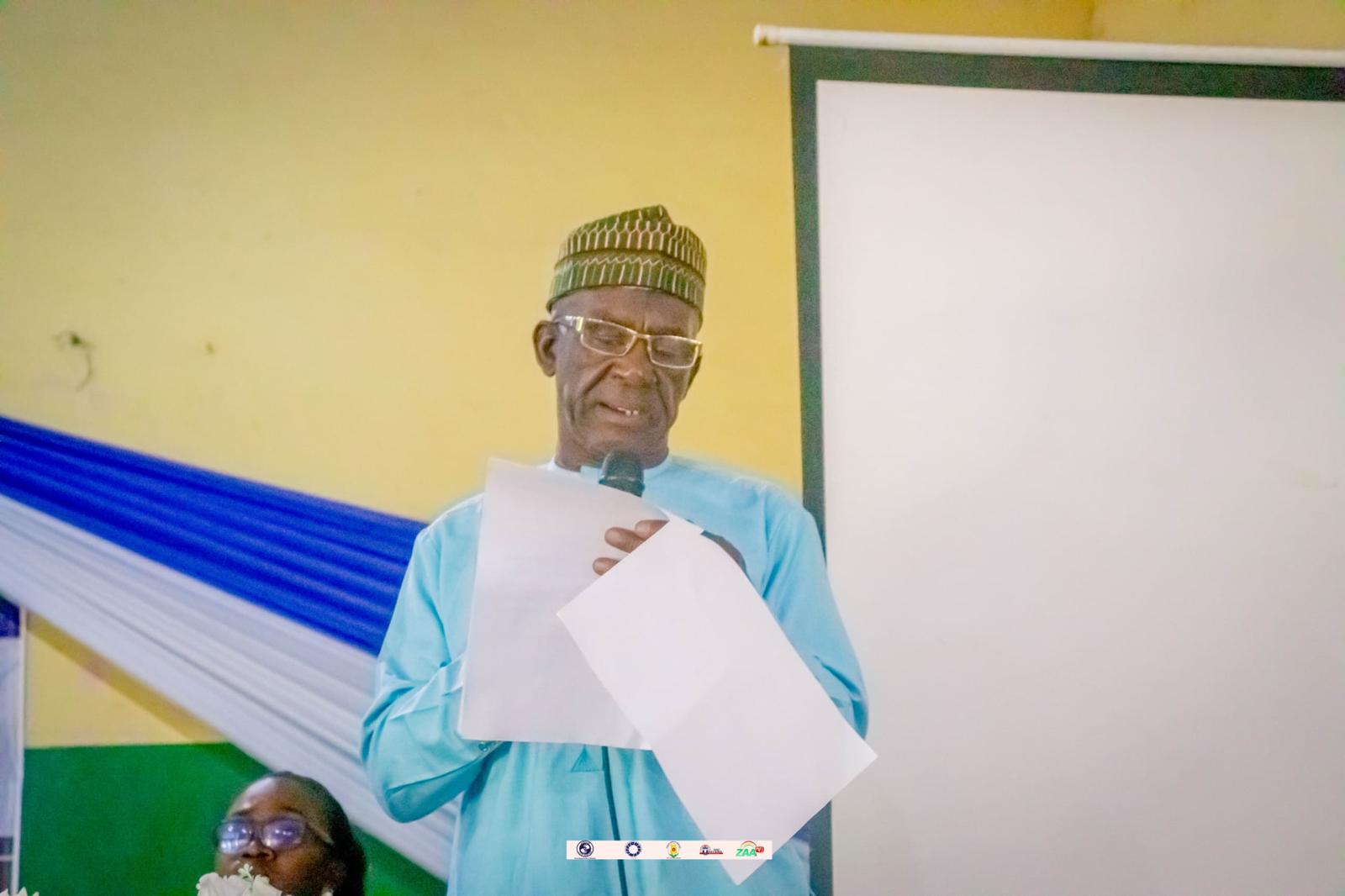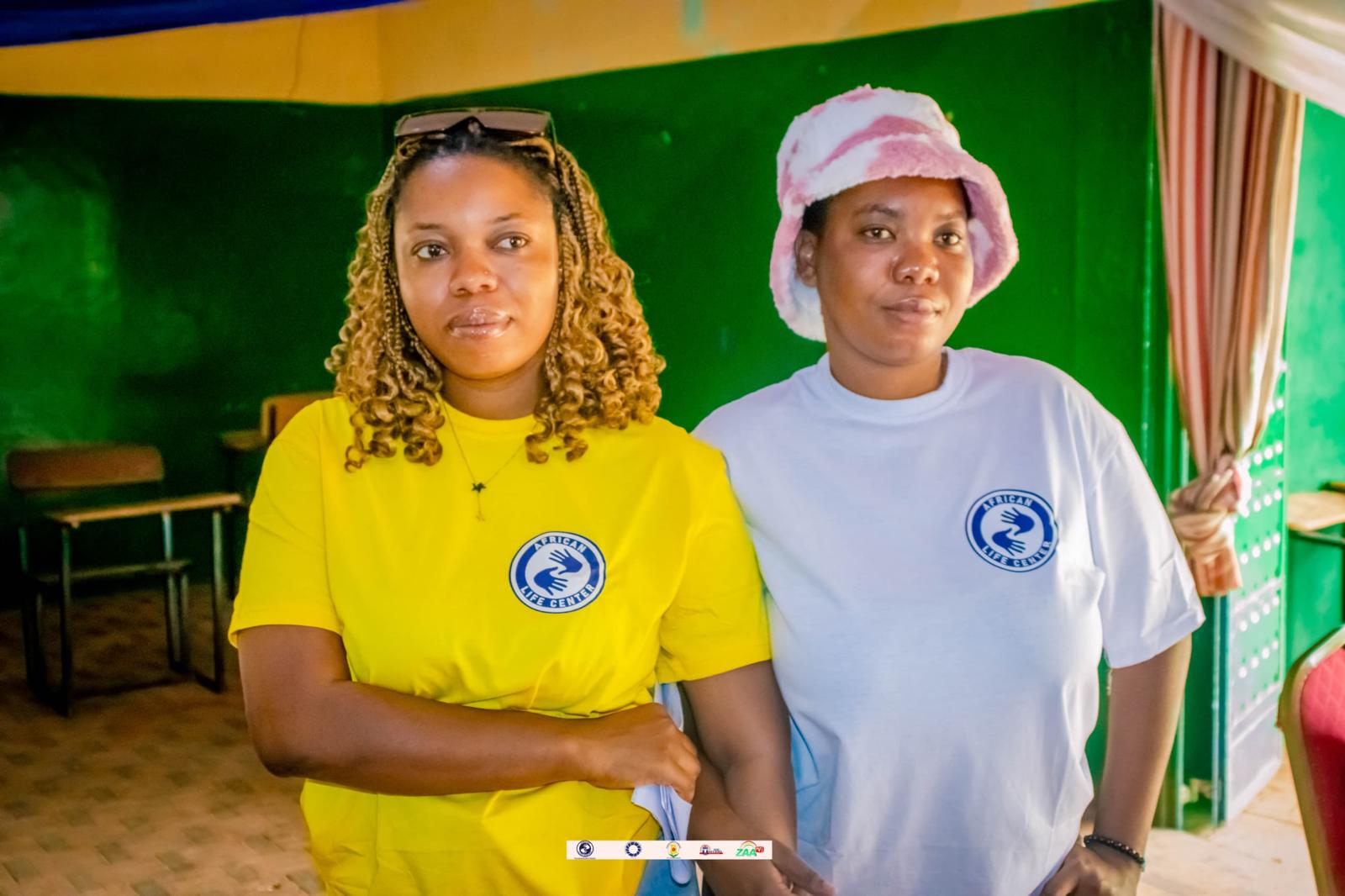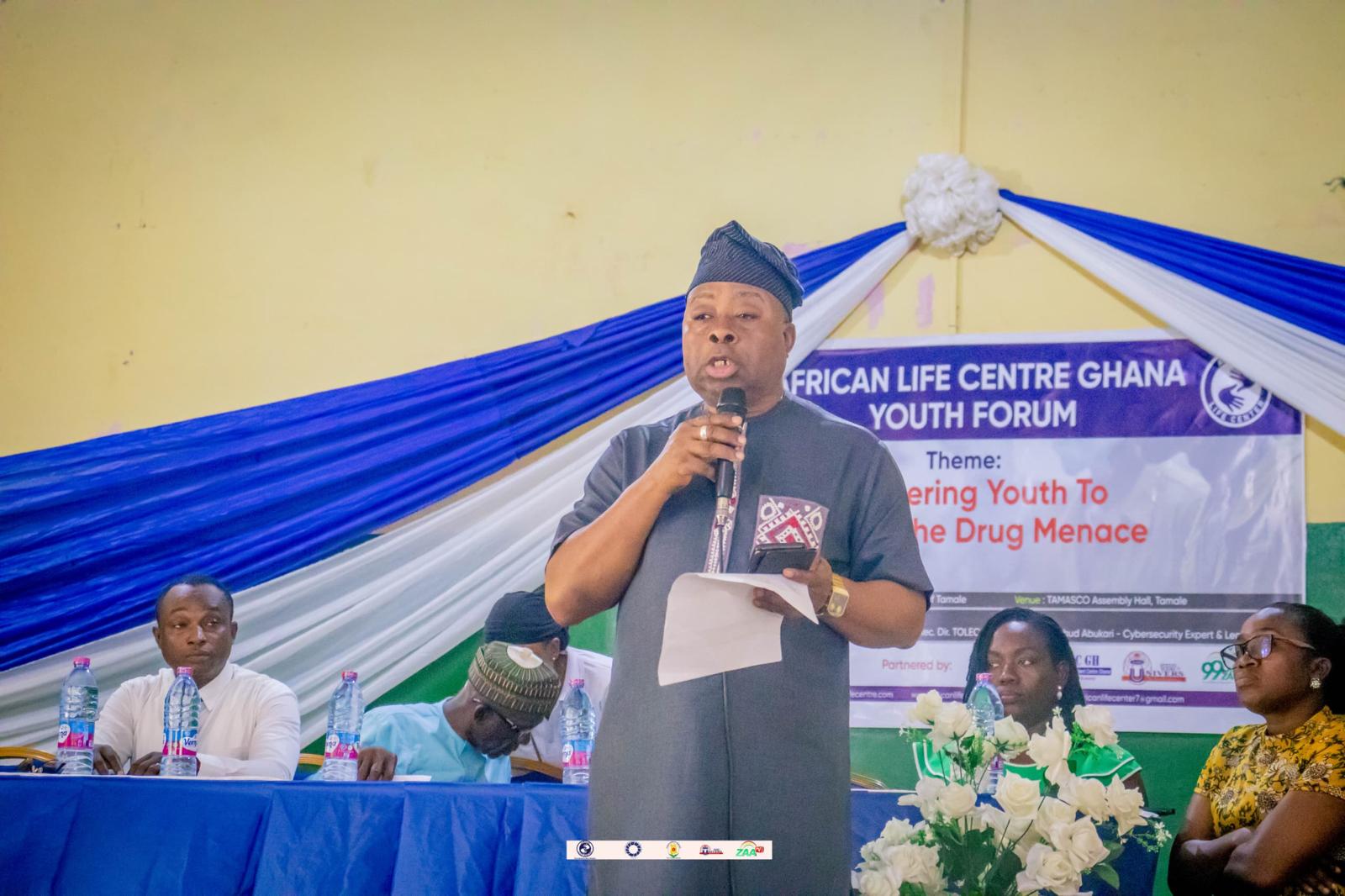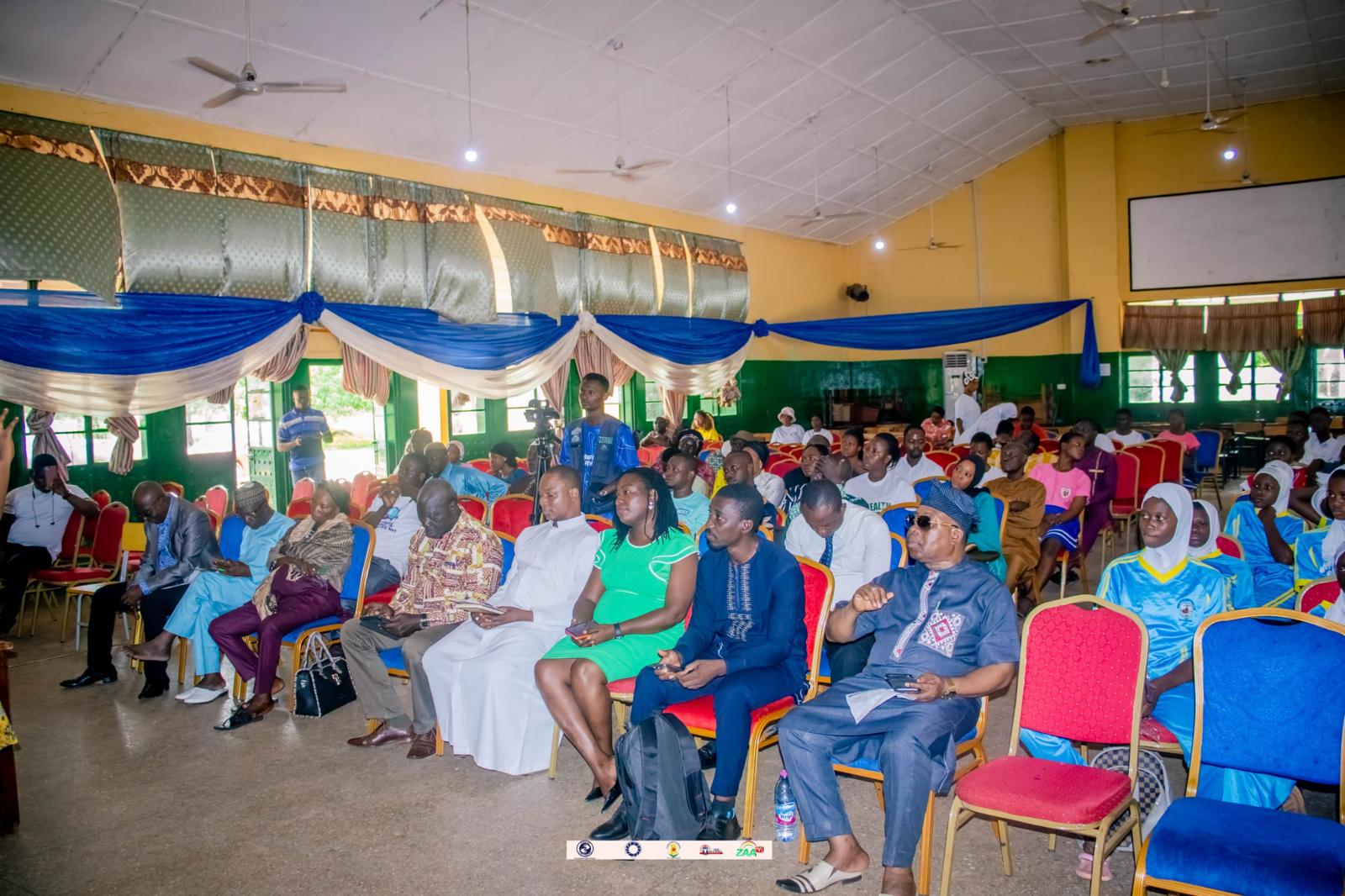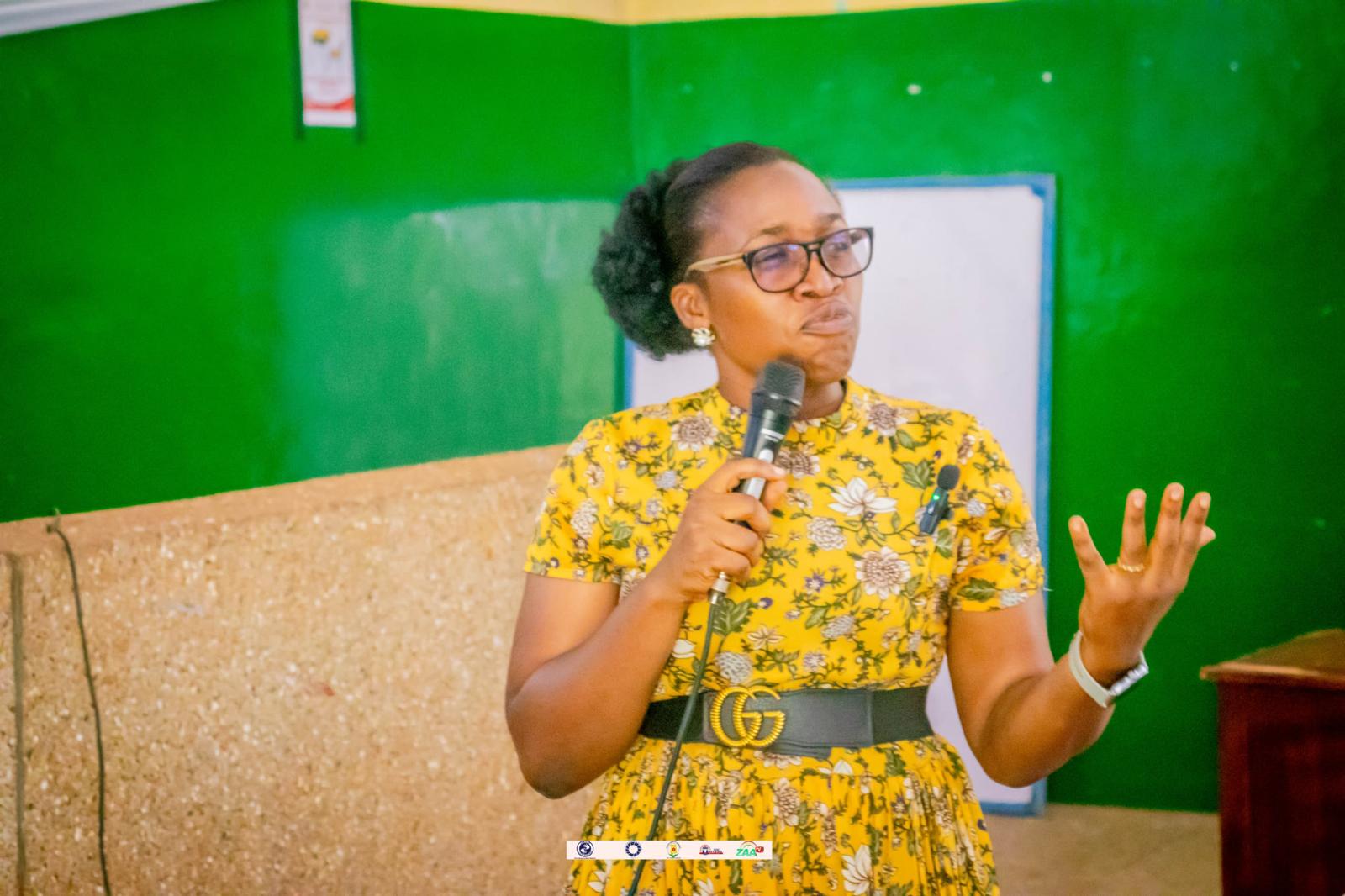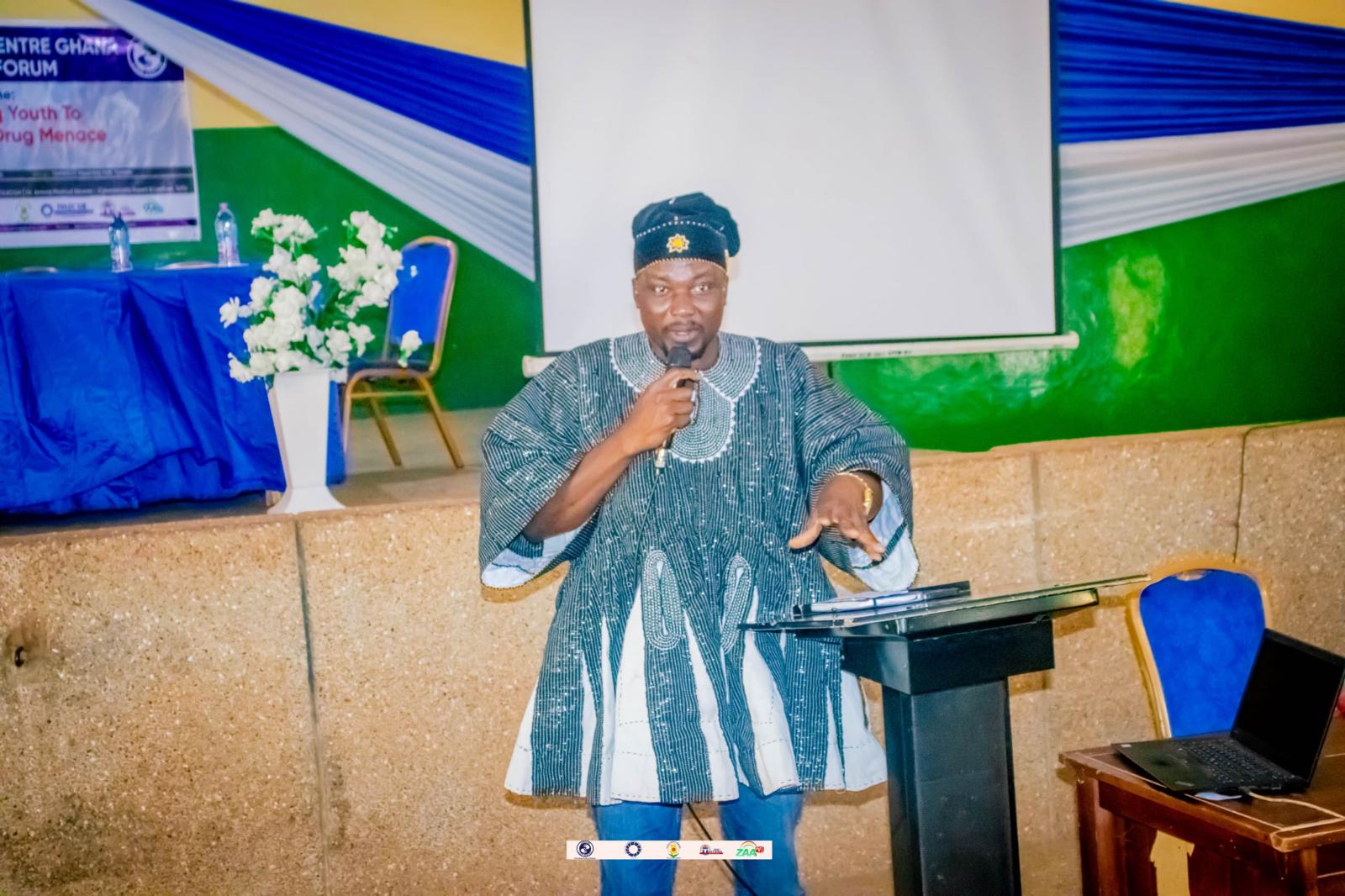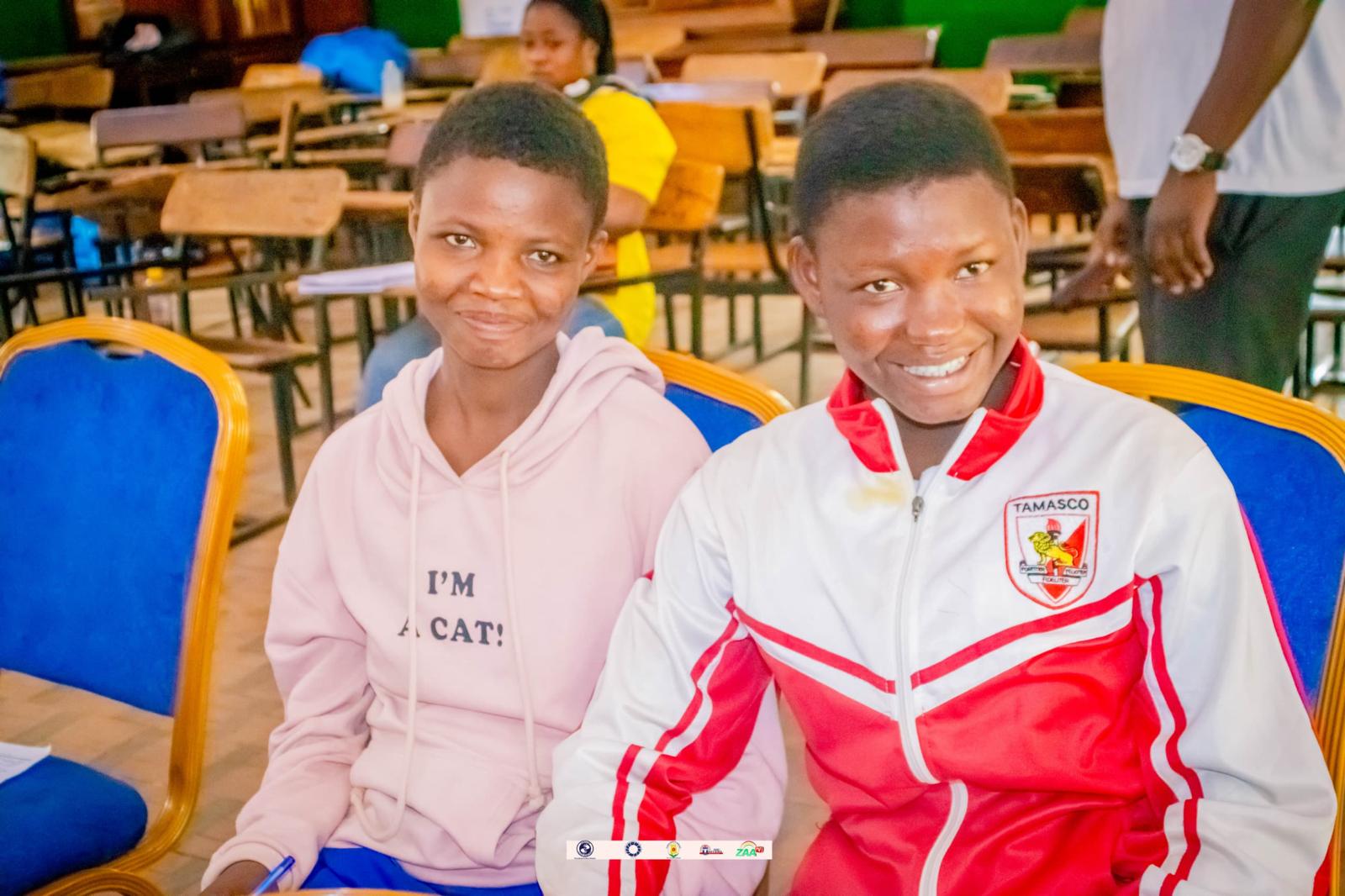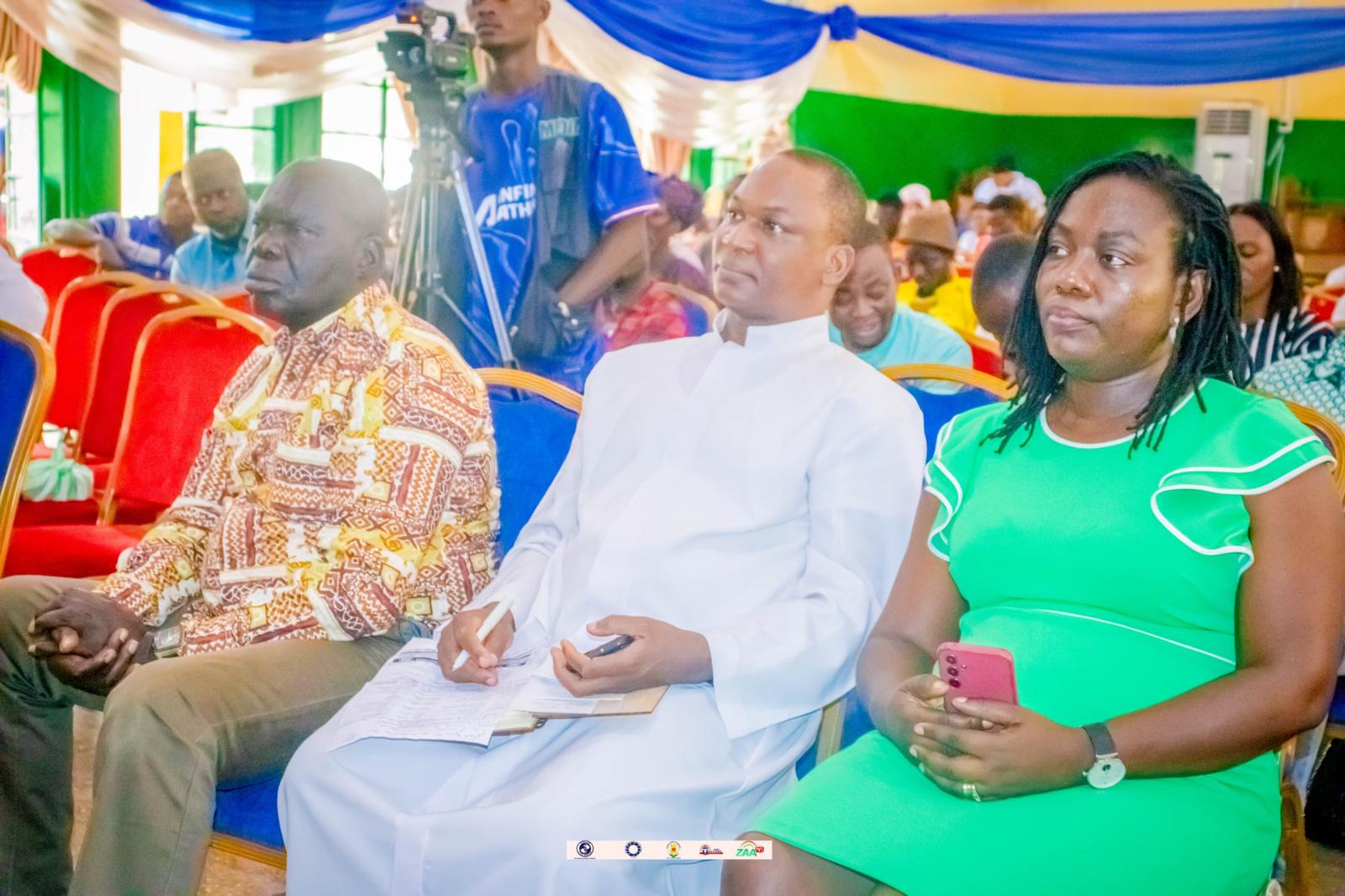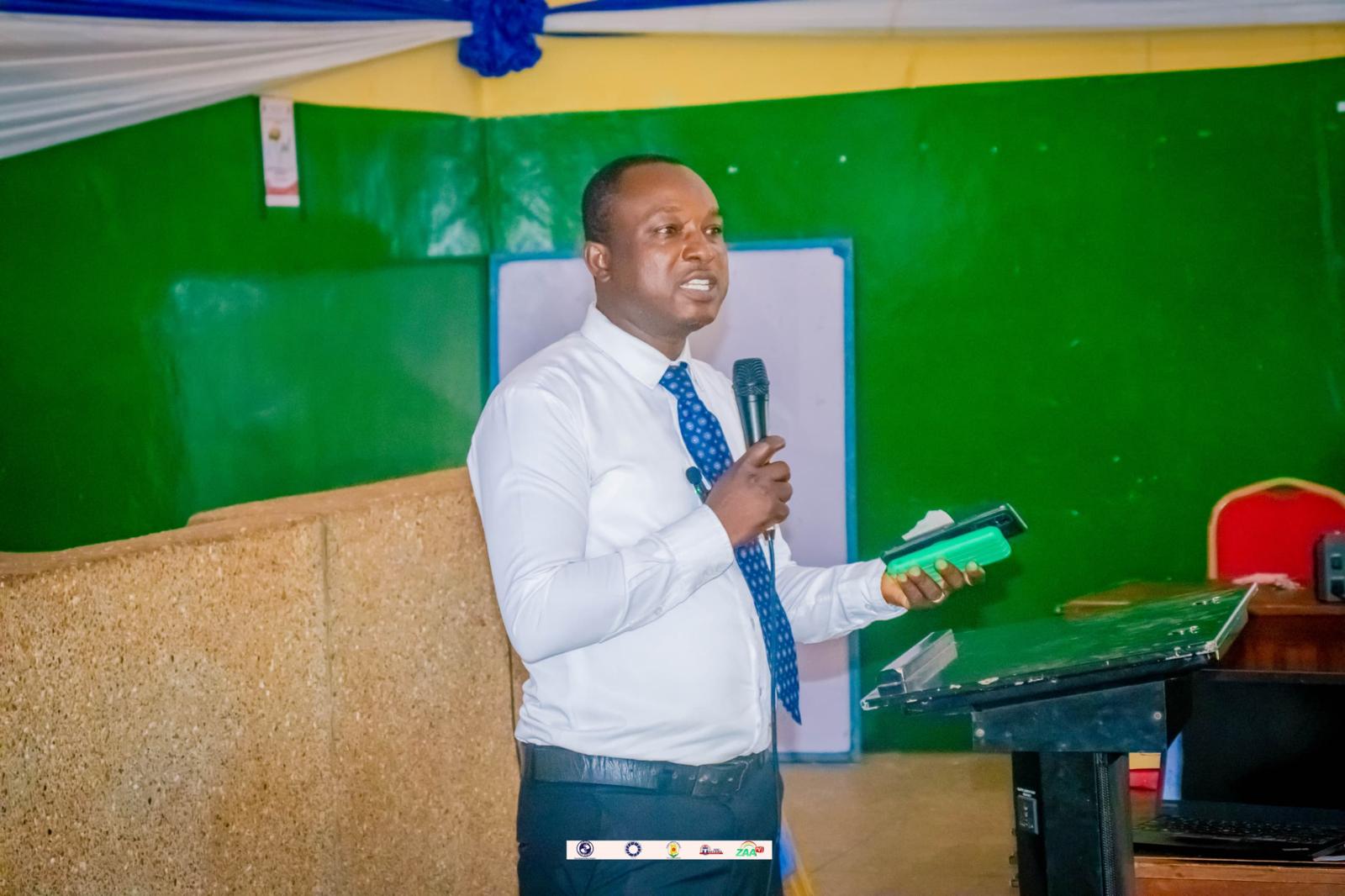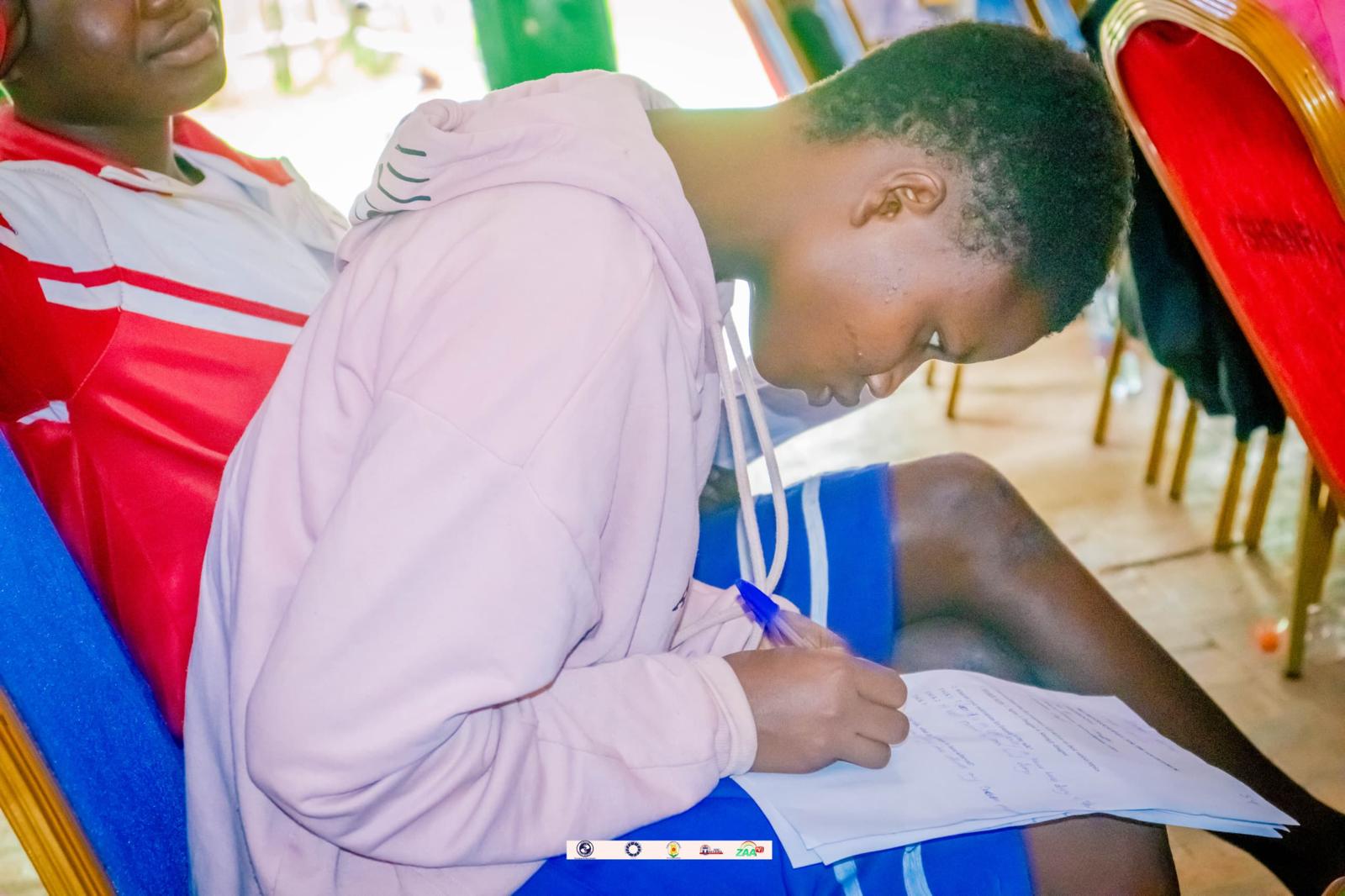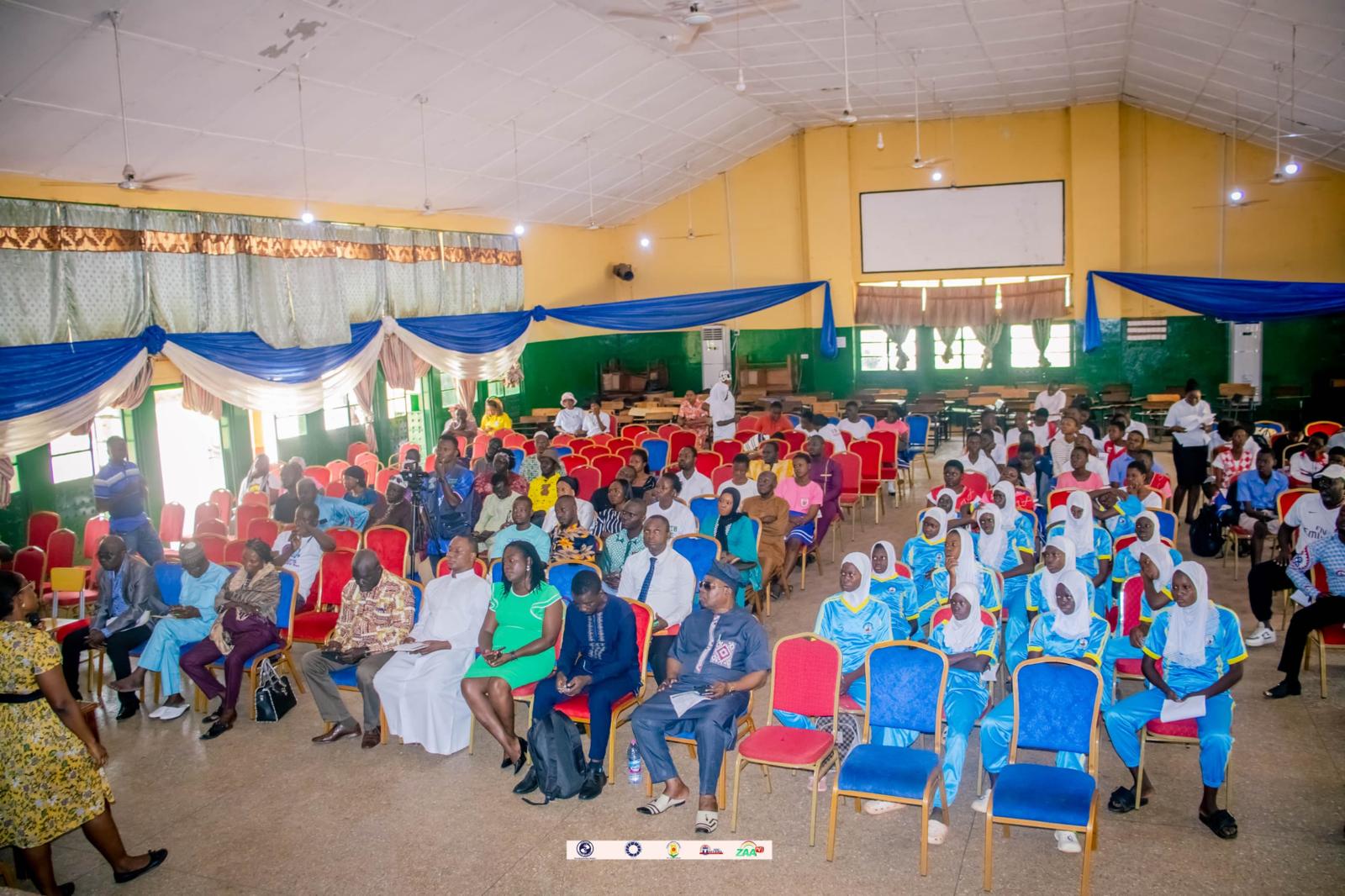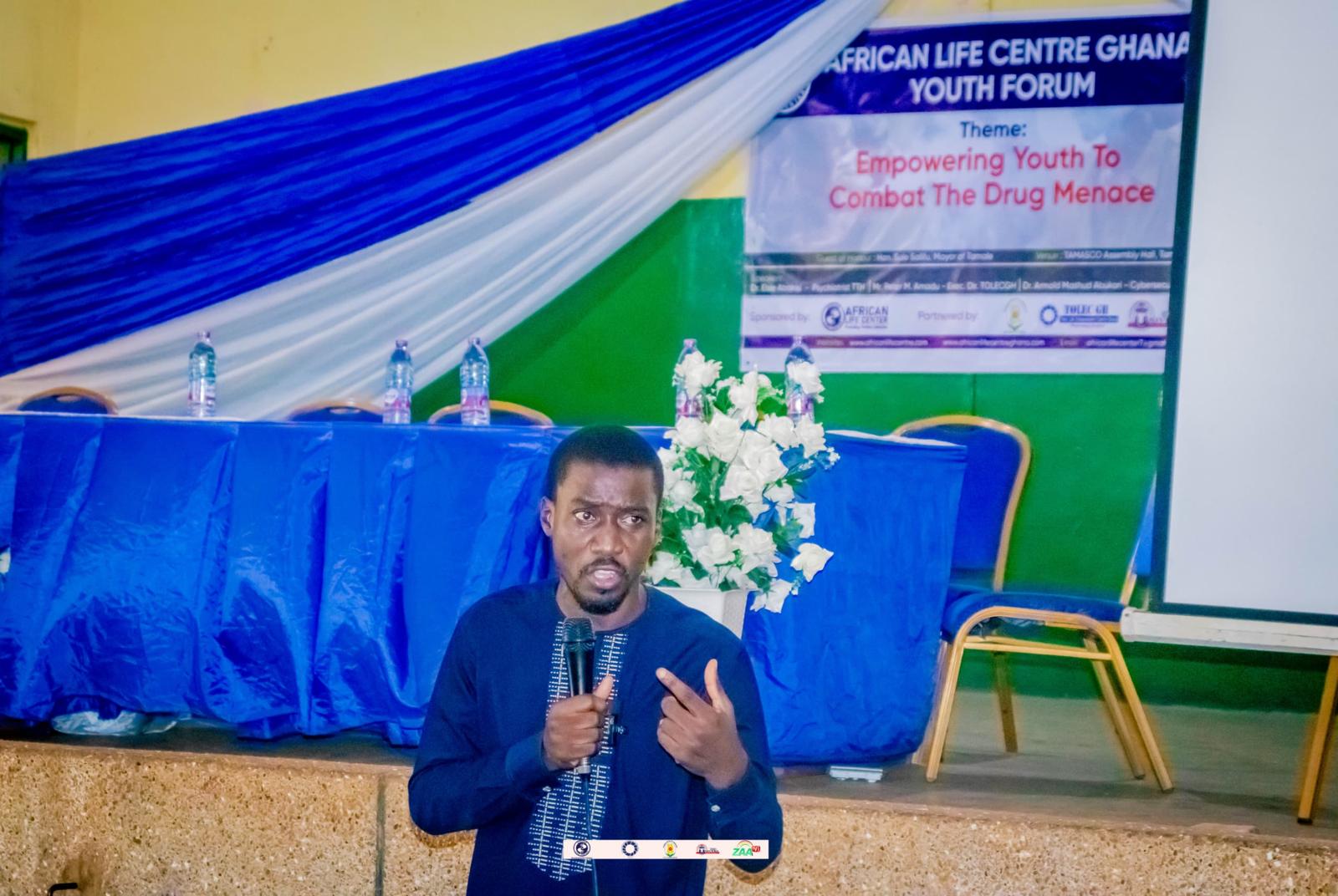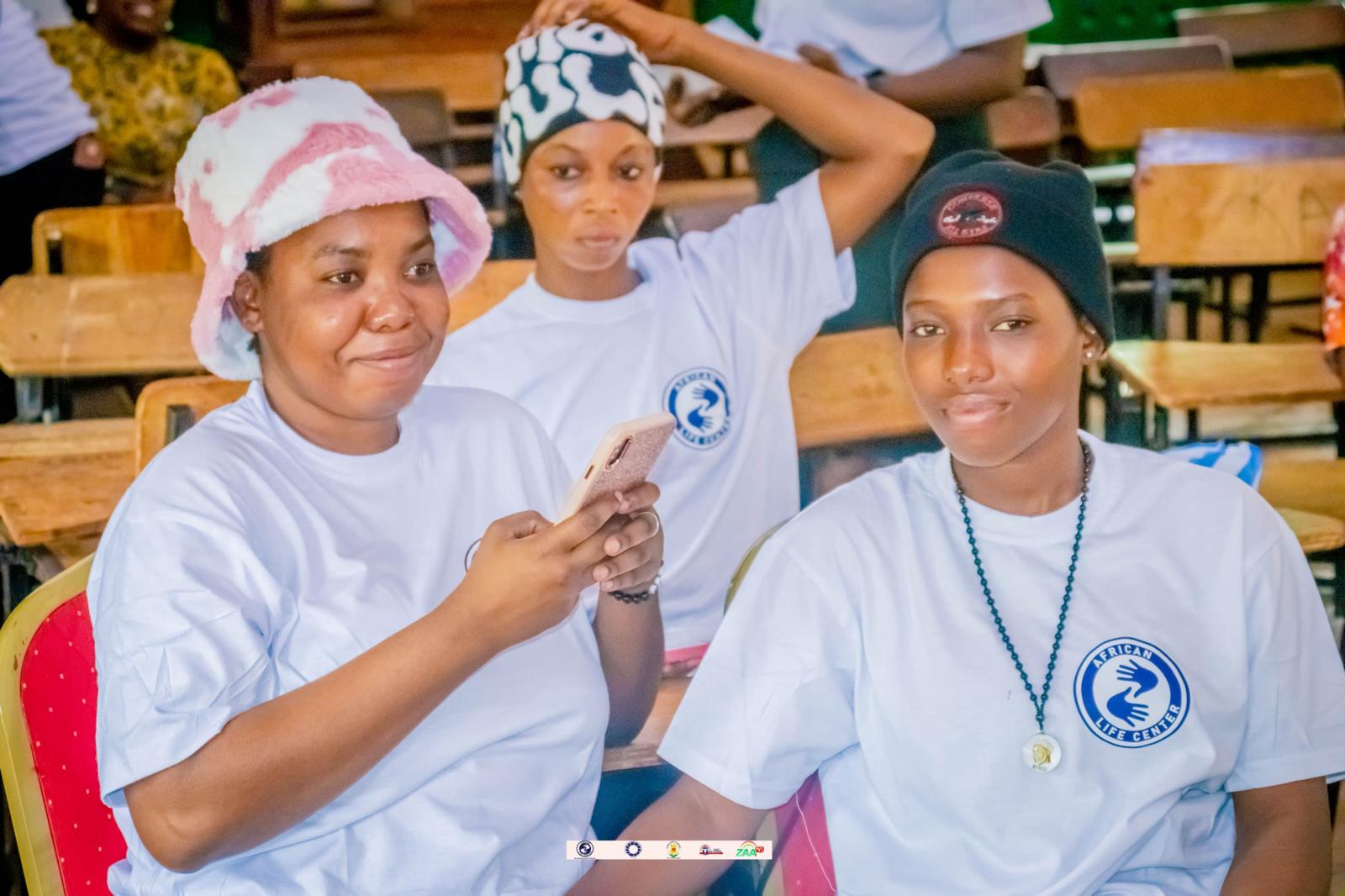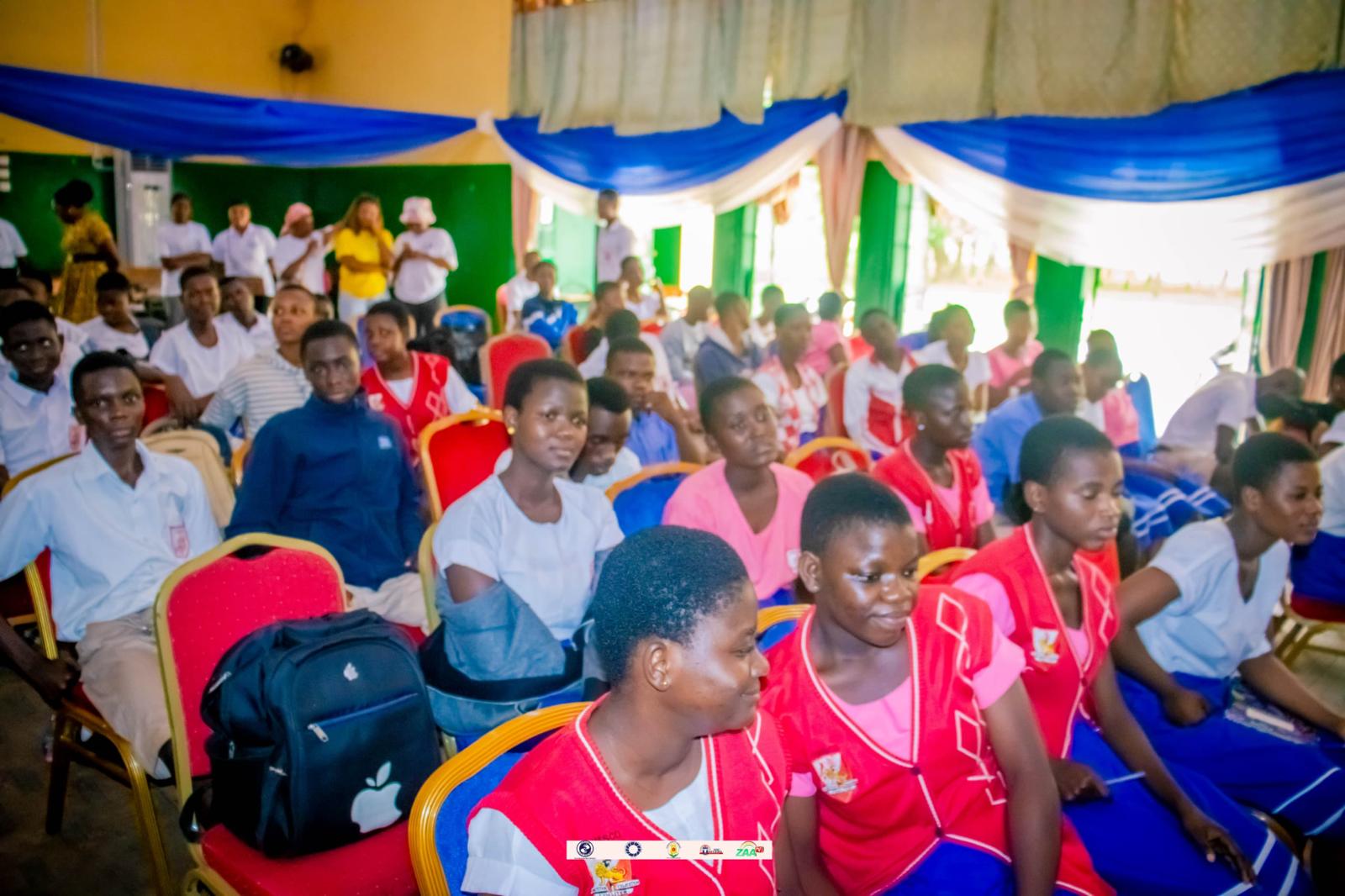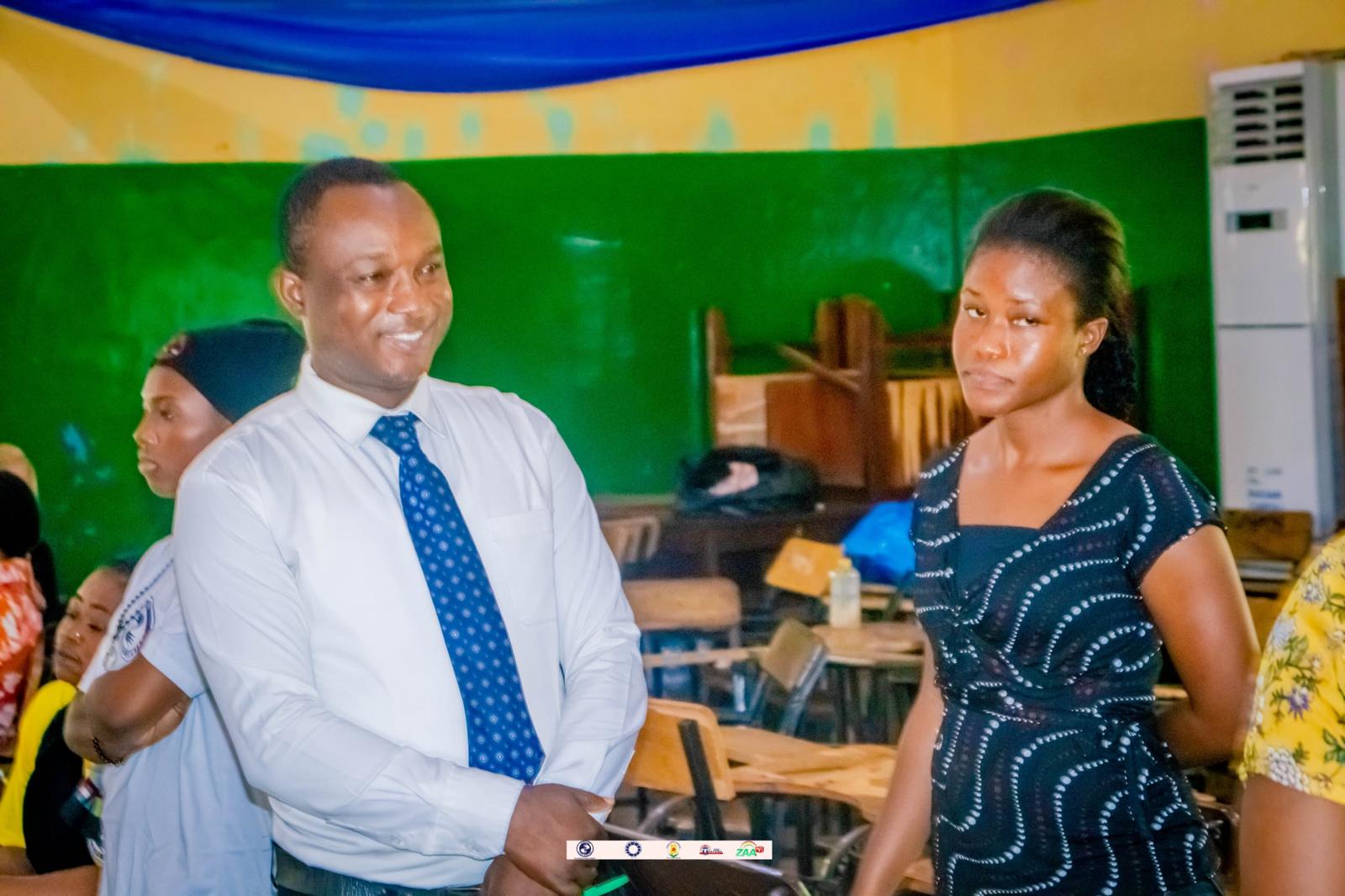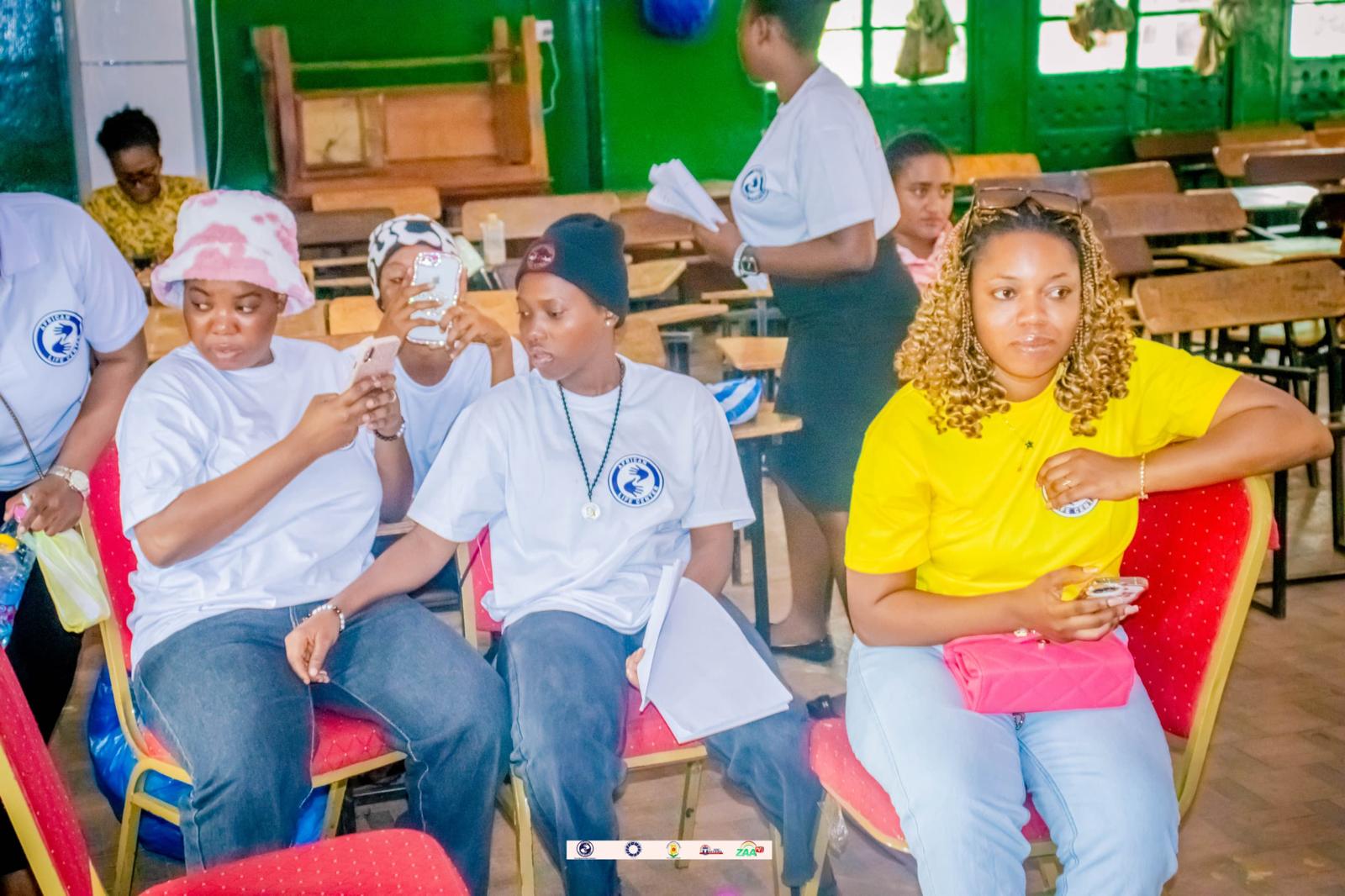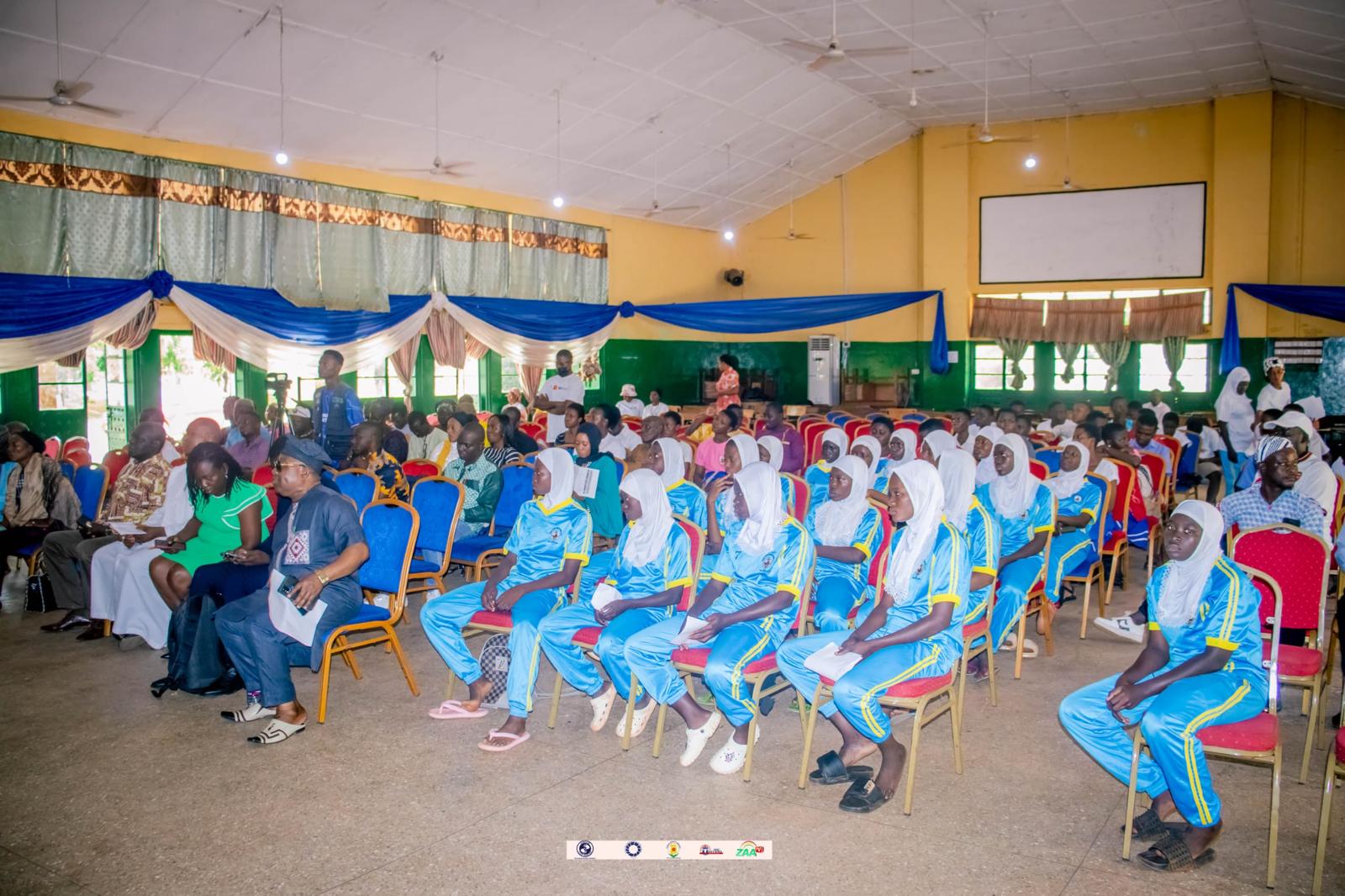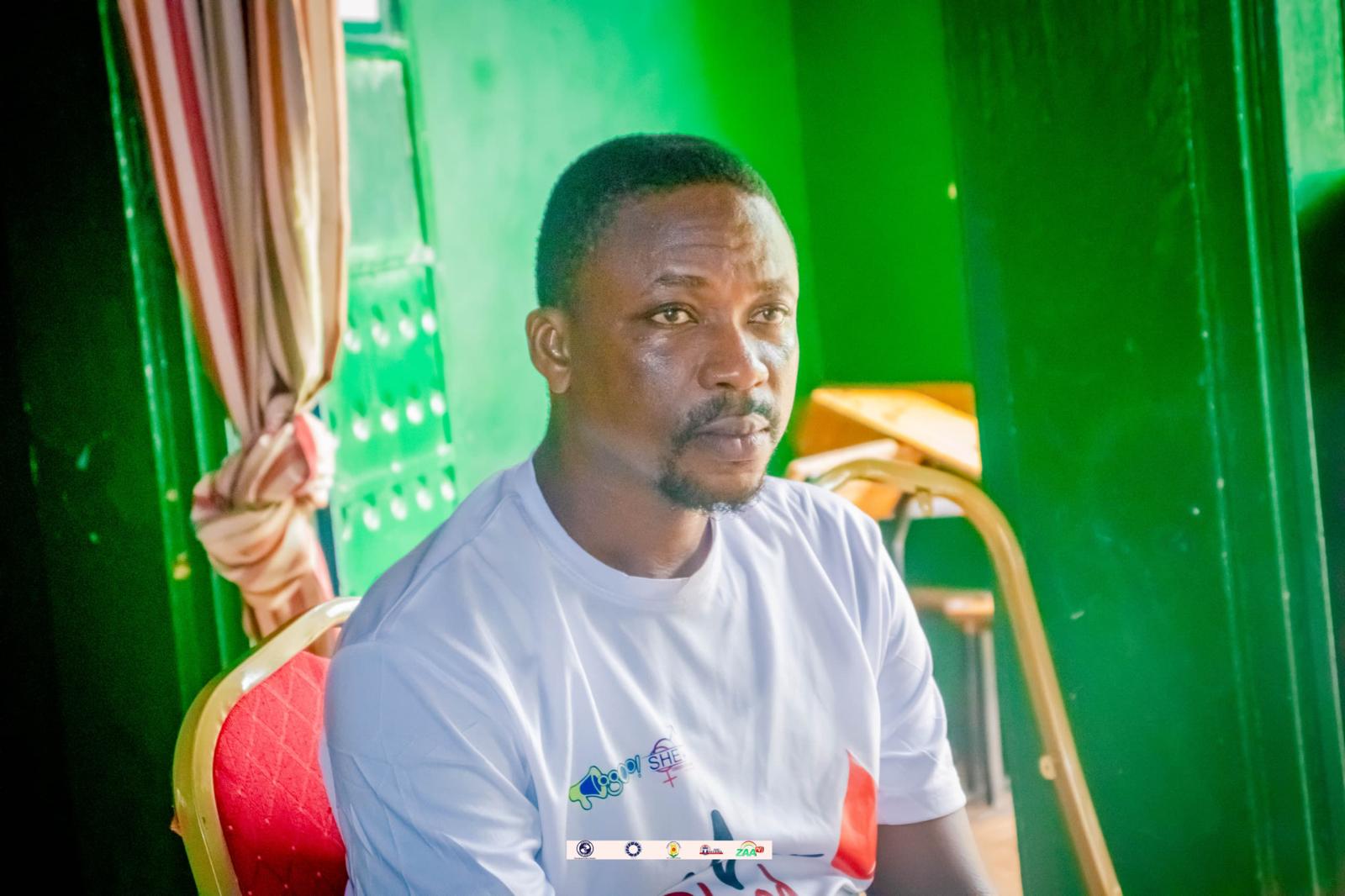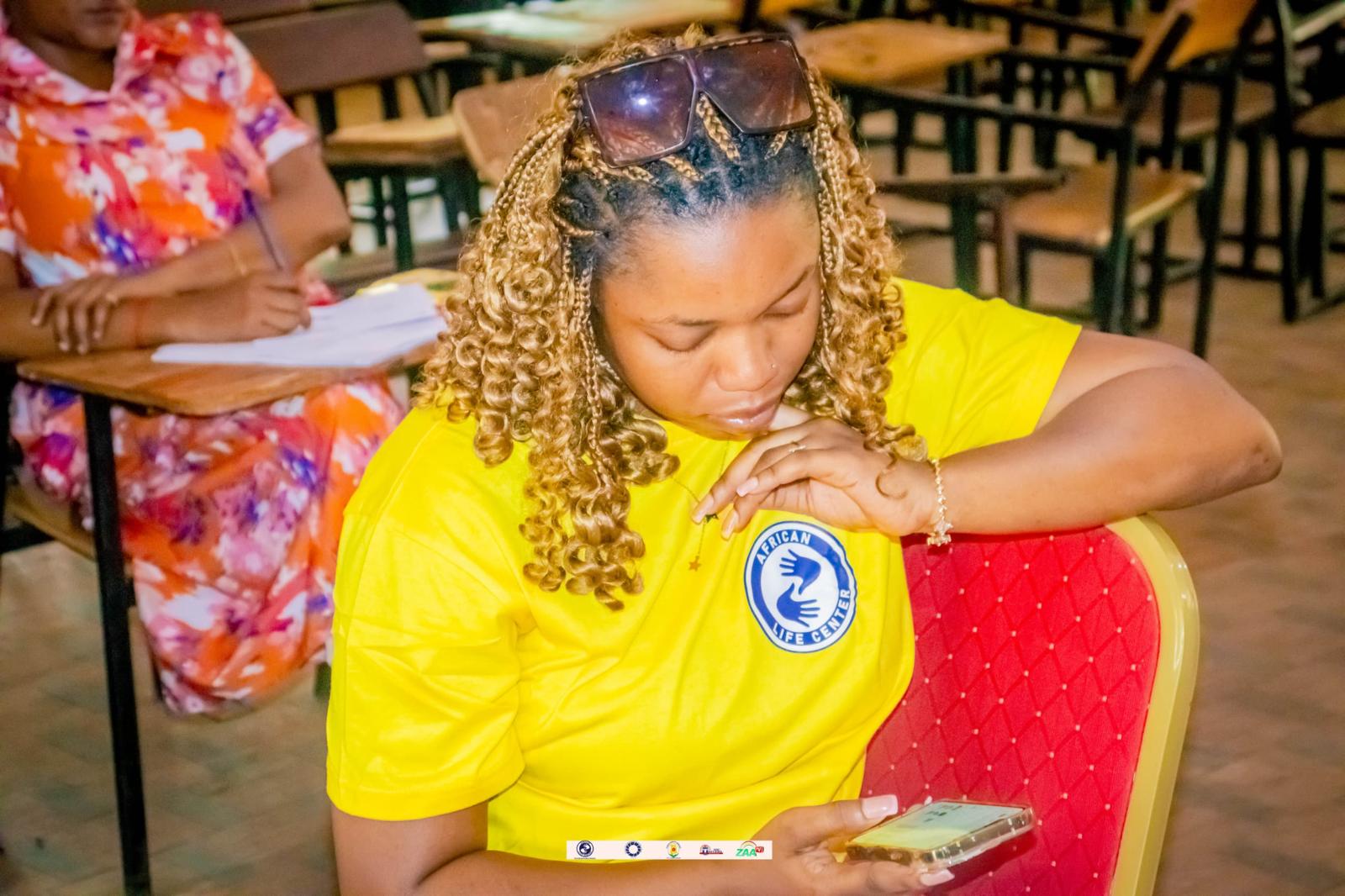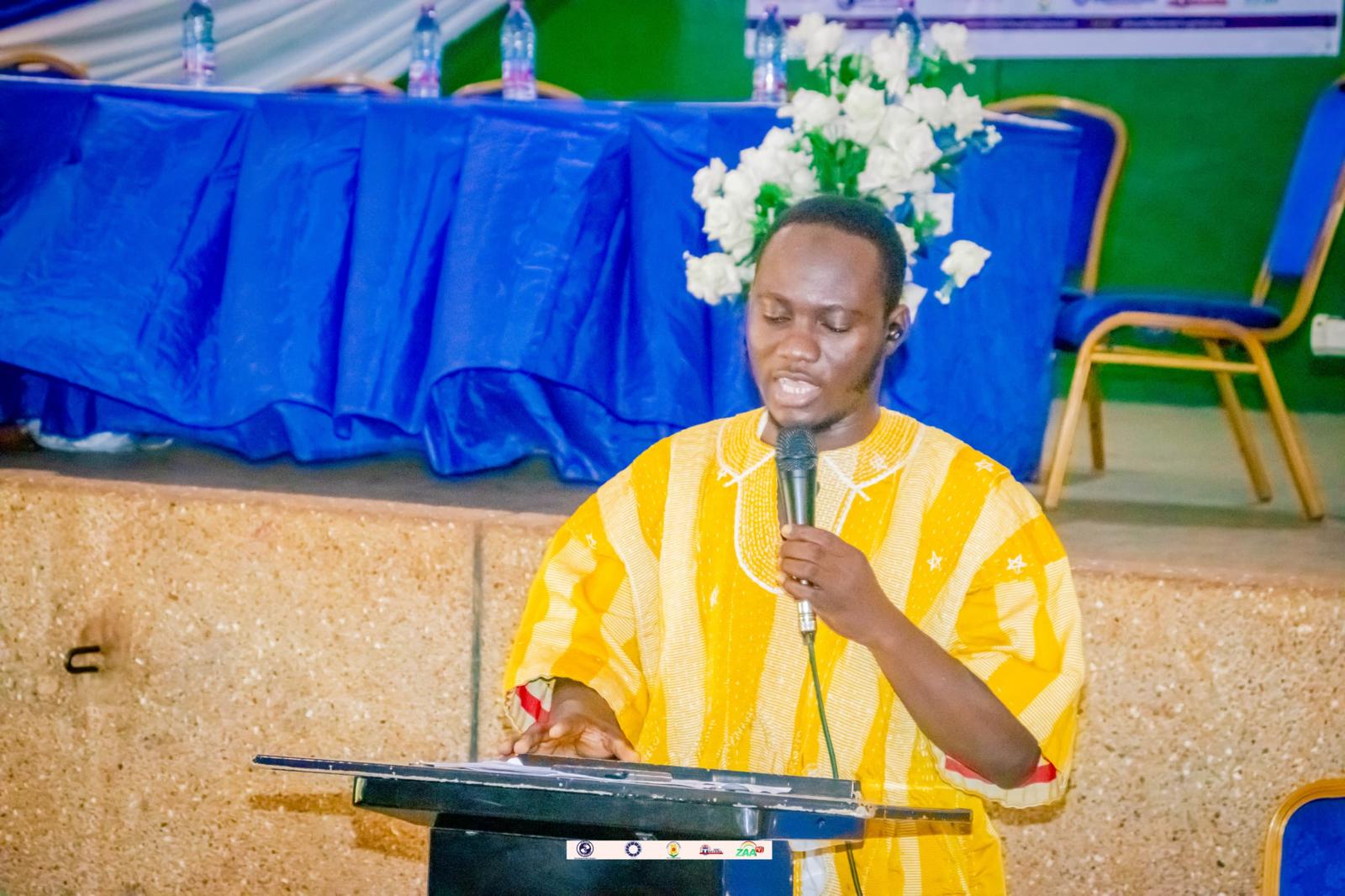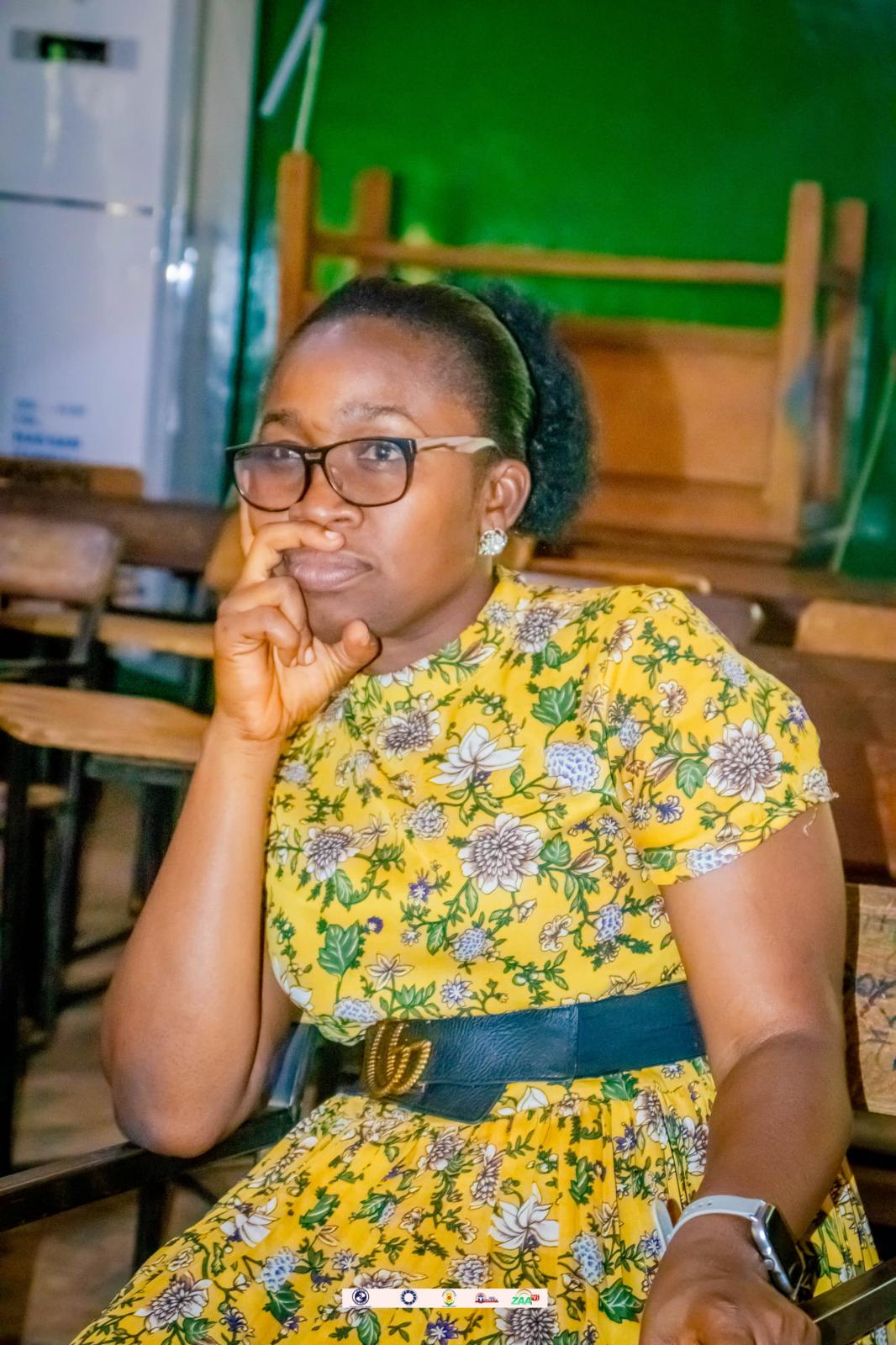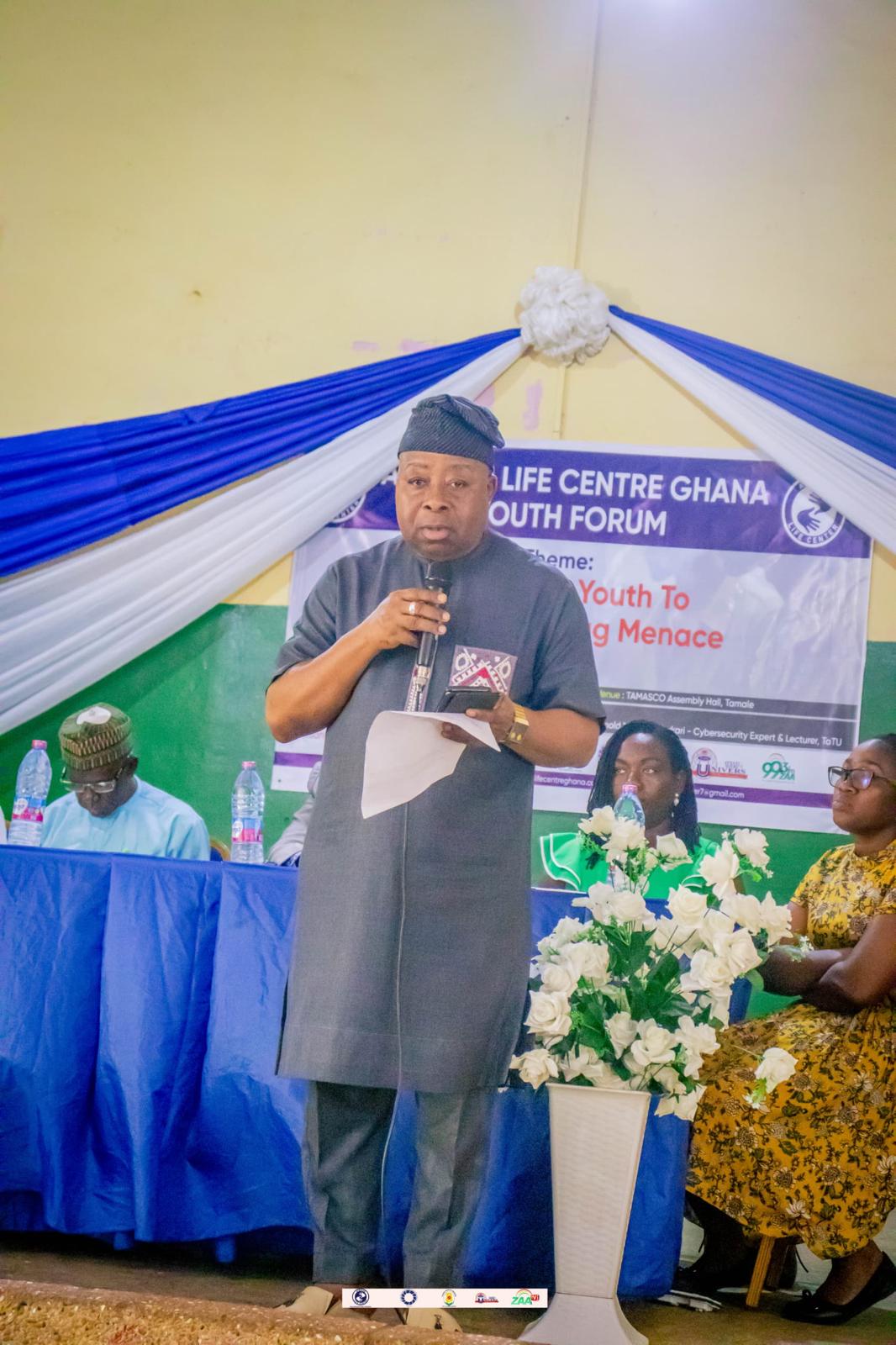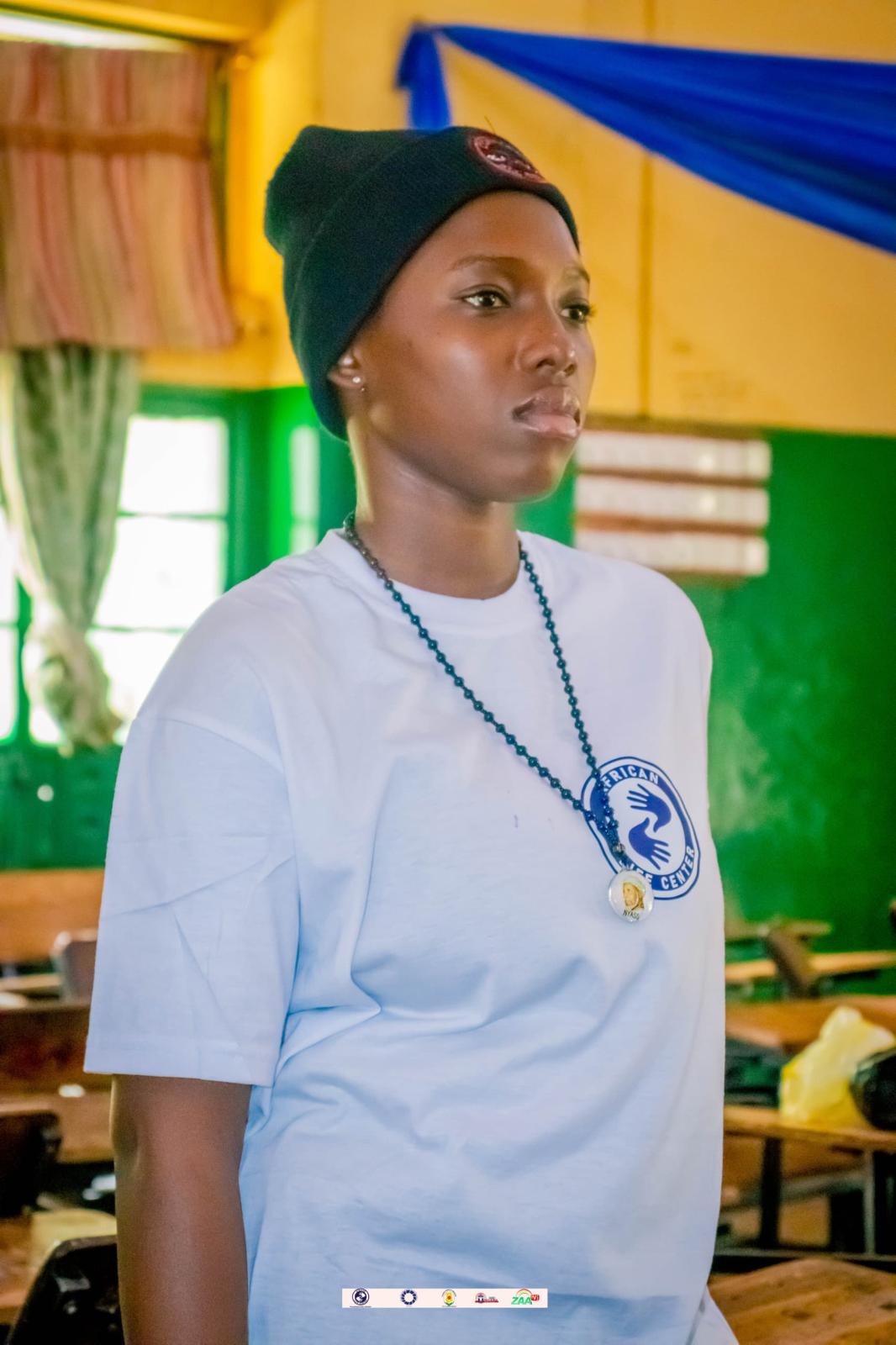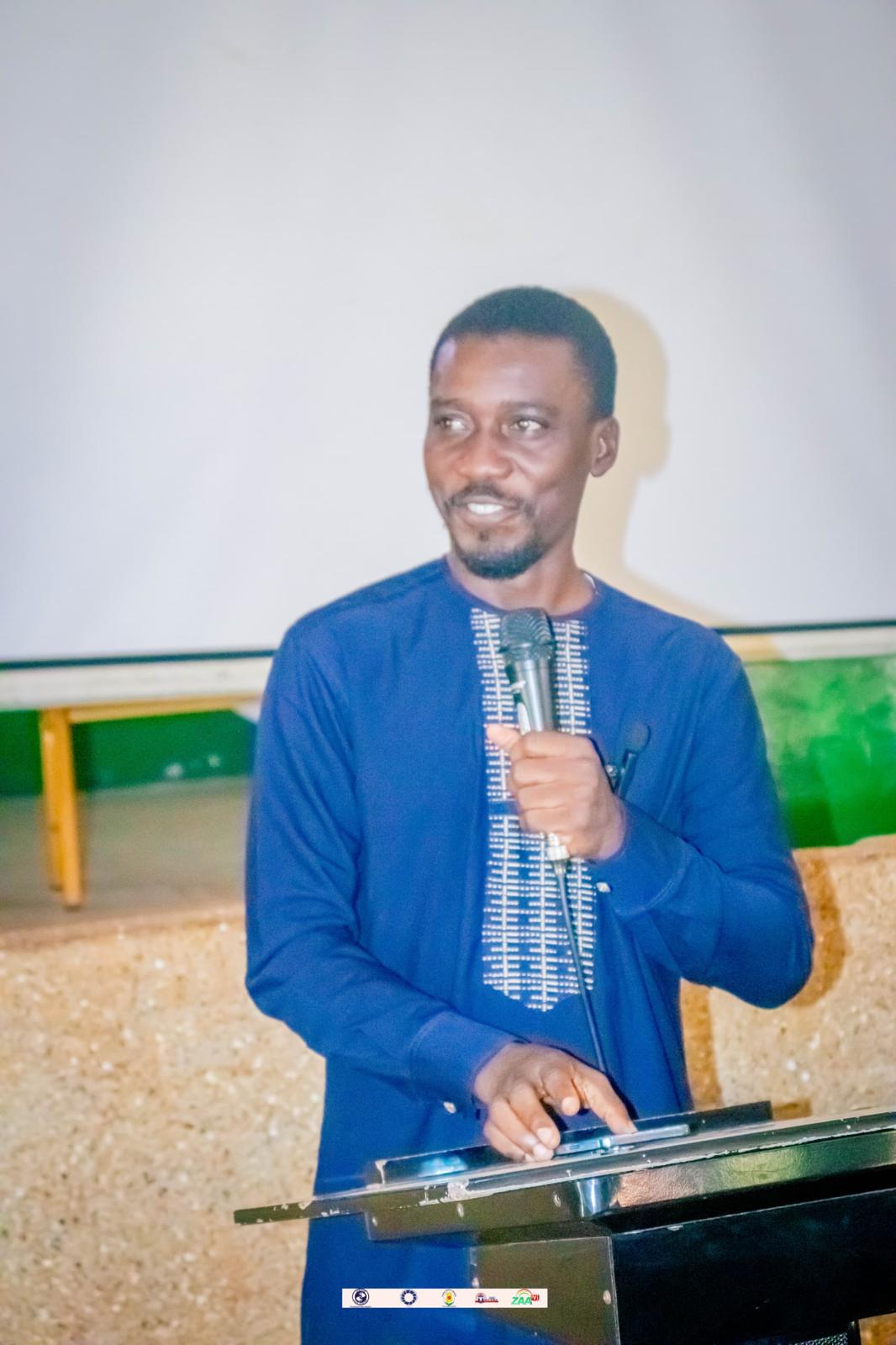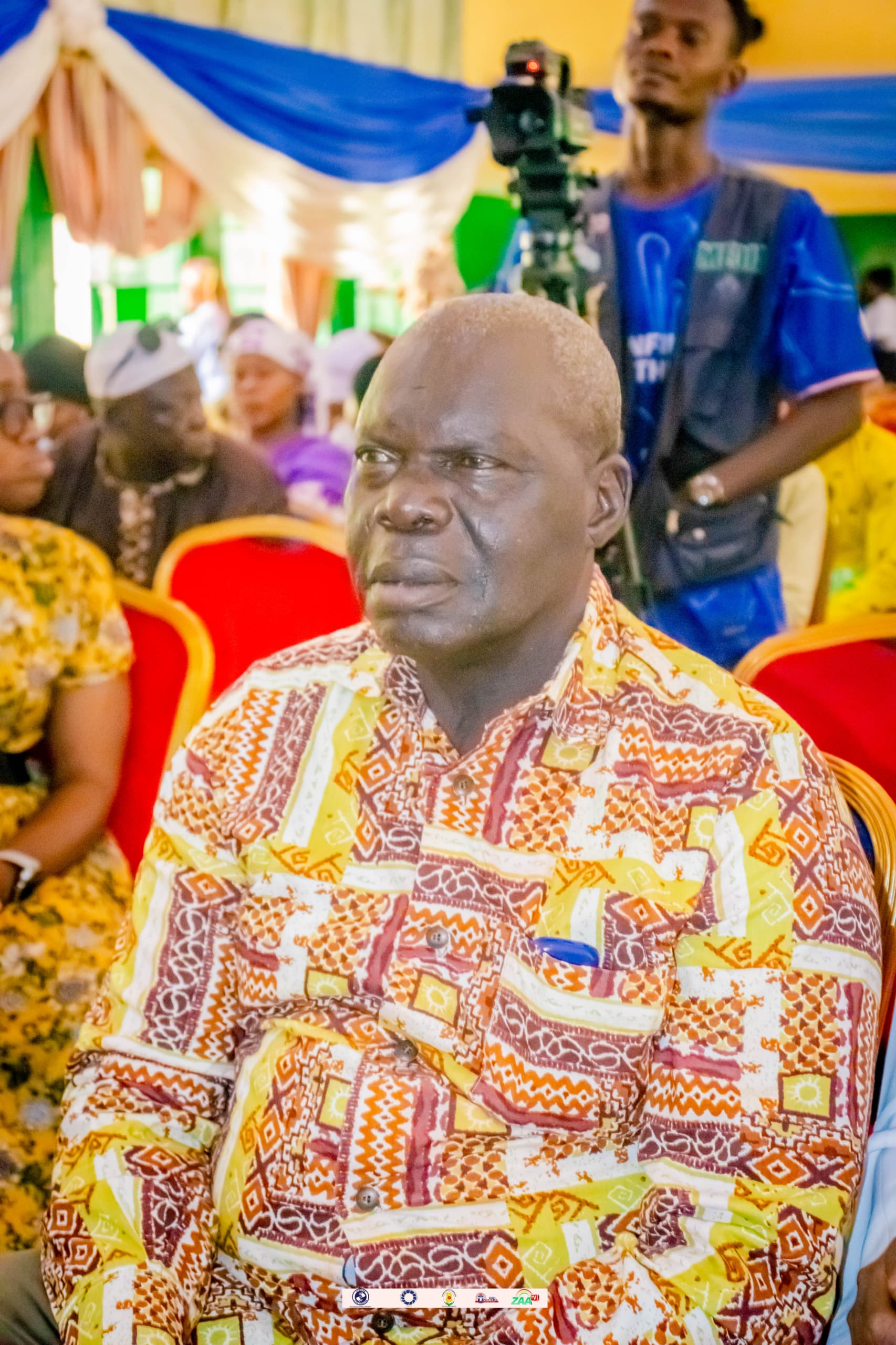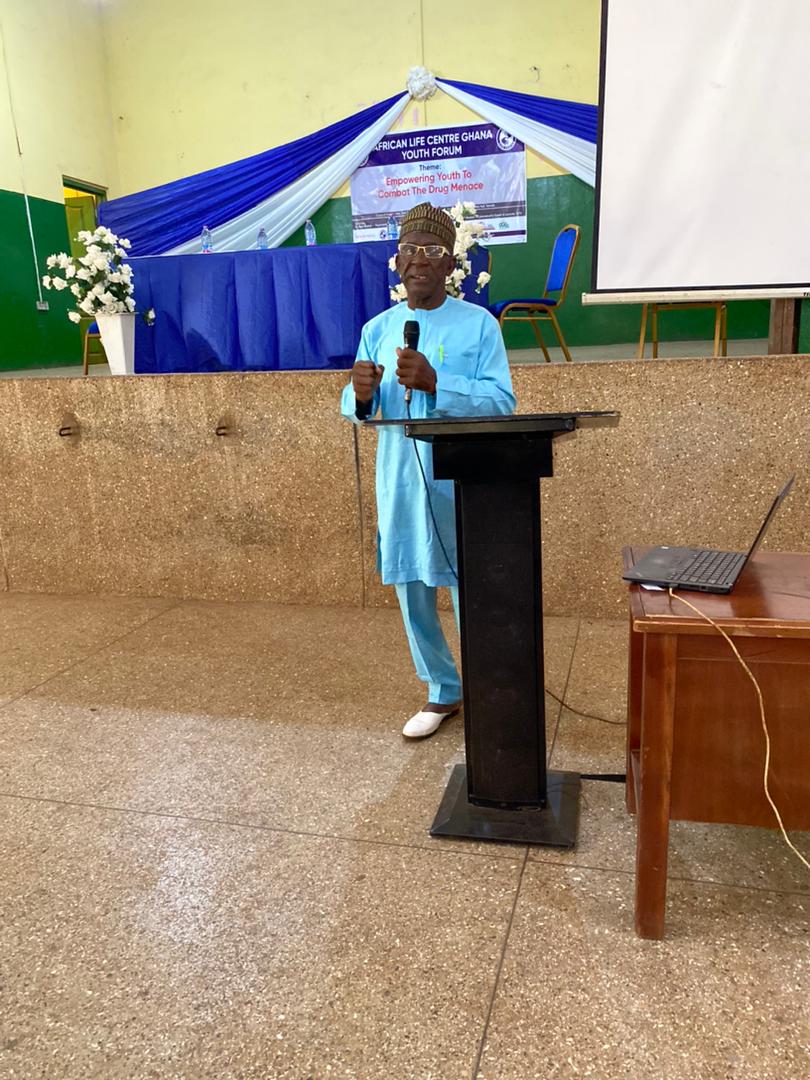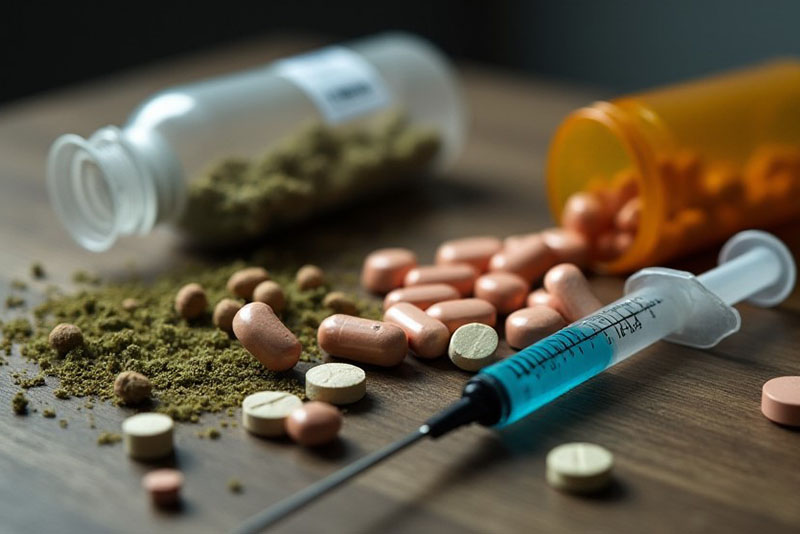
Organized by
African Life Center Ghana (ALC)
in collaboration with
Total Life Enhancement Centre Ghana, Ghana Health Service, and Zaa Multimedia
Venue
Tamasco Old Assembly Hall, Tamale, Northern Region, Ghana
Date
August 24, 2024
On the 24th of August 2024, a regional Youth Forum was organized to commemorate International Youth Day, under the theme "Empowering Youth to Combat the Drug Menace". The event was spearheaded by the African Life Center Ghana, a subsidiary of the African Life Center New York, in collaboration with the Total Life Enhancement Centre Ghana, the Ghana Health Service Tamale, and Zaa Multimedia. The forum, held at the Tamasco Old Assembly Hall in Tamale, brought together a diverse group of stakeholders to address the escalating issue of drug abuse among the youth in Northern Ghana.
A total of 151 participants, representing youth groups, political leaders, the Ghana Health Service, the Ghana Education Service, and other Civil Society Organizations (CSOs), attended the event. The day began with the arrival and registration of participants at 9:00 AM, accompanied by a pretest assessment. This assessment was designed to gauge participants' prior knowledge and expectations regarding the three presentations scheduled for the forum.
The forum’s agenda included an opening prayer, followed by welcome remarks from the country representative of African Life Center Ghana. The presentations covered key areas of concern: understanding the impact of drug abuse on youth, strategies for preventing drug abuse, and leveraging ICT tools for employment and income generation. A poignant poetry recital titled "I Was Once Innocent" further highlighted the emotional and social consequences of substance abuse.
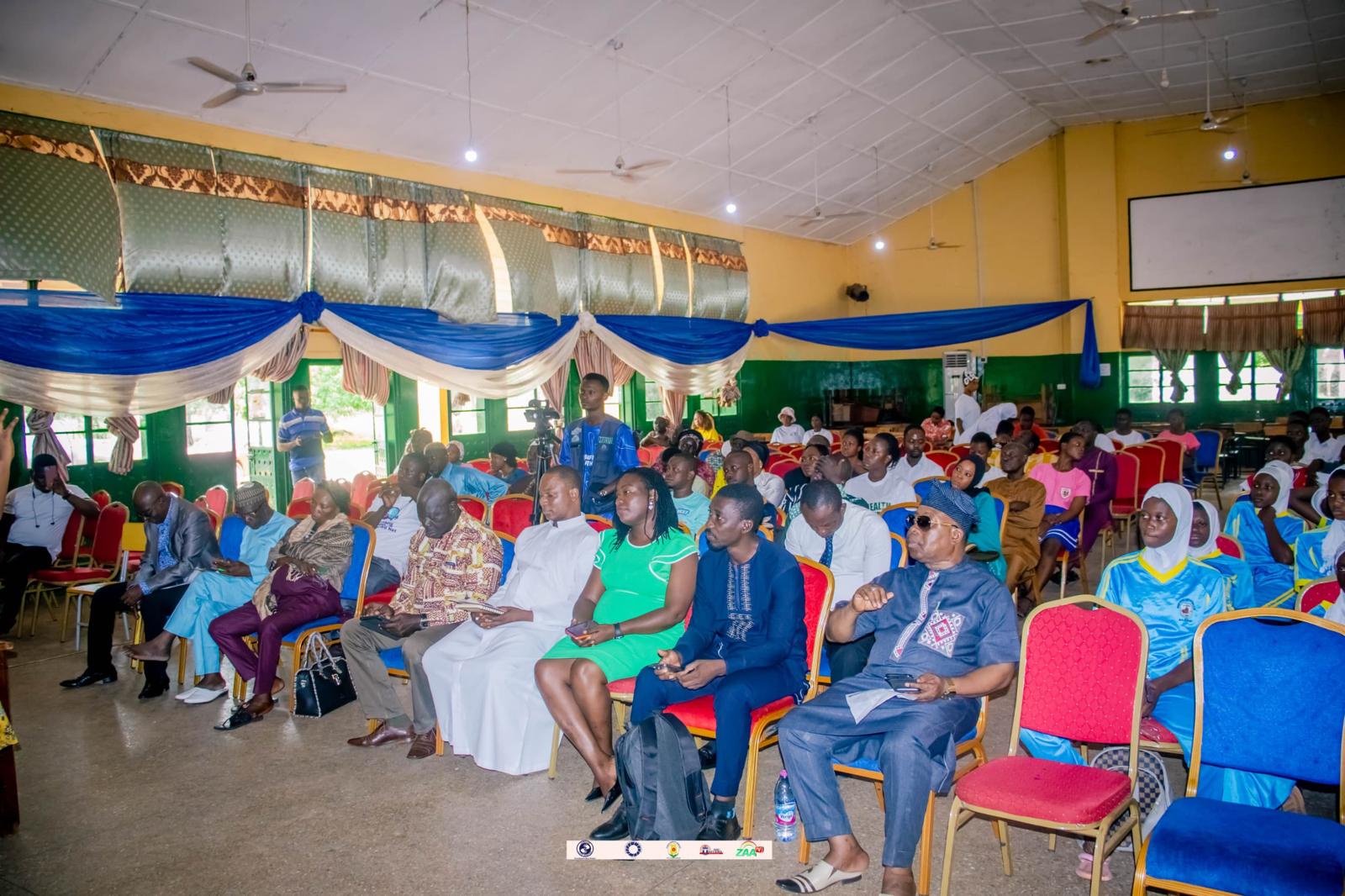
The forum concluded with remarks from the Ghana Health Service and a special message from the Mayor of Tamale, urging the youth to rise to the challenge of combating the drug menace. This event underscored the critical role of youth in addressing the growing threat of drug abuse and highlighted the importance of equipping them with the right knowledge and tools to create lasting change.
The forum commenced with an opening prayer led by Rev. Fr. Boris Charles Ansu Tengabo from the SS Peter and Paul Parish of the Catholic Church. His prayer set a solemn and reflective tone for the day, seeking guidance and blessings for the success of the event and the important discussions that would follow.
Following the prayer, Alhaji Abdul-Rahman Yakubu (Alhaji AB), the Master of Ceremonies for the event, took the opportunity to introduce the various dignitaries present. His introductions helped to acknowledge the presence of key figures and set a respectful and formal atmosphere for the forum.
The first major component of the Youth Forum was the opening remarks delivered by Alhaji Mumuni Mahama, the Country Director of African Life Center Ghana. Speaking on behalf of the organization, Alhaji Mahama began by expressing gratitude to all the participants for honoring the invitation and attending the forum. His speech emphasized the urgent need to address the growing drug menace among the youth, acknowledging the devastating impact this issue is having on communities.
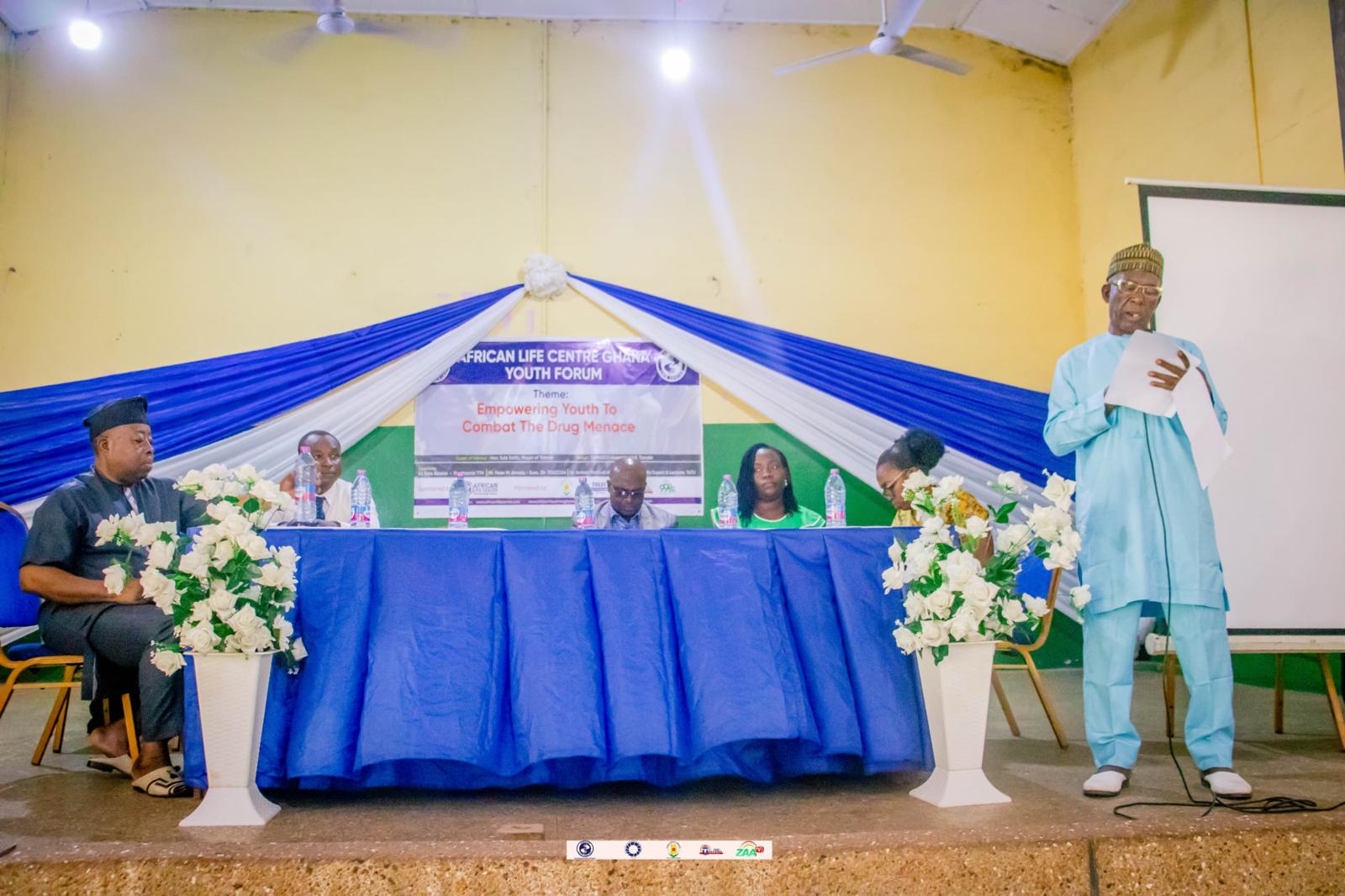
Alhaji Mahama urged the gathering not to focus on apportioning blame, but rather to unite in seeking solutions. He stressed that this was a time for action, highlighting the importance of showing love and compassion to those struggling with addiction. Drawing from personal experience, he shared that after the organization’s initial radio advocacy on Zaa Radio, they were inundated with calls from individuals battling addiction, underscoring the severity and reach of the problem.
In his remarks, Alhaji Mahama also spoke against the stigma often directed at victims of drug abuse, reminding everyone that it is a collective responsibility to help those affected. He appealed to parents, religious leaders, and other opinion leaders to join the fight against drug abuse, stating that no one is exempt from this battle. He further outlined some of the common mental health effects of substance abuse, emphasizing how widespread the issue has become.
His concern for the future was evident, as he expressed fear that if the situation is not addressed, the next generation of leaders may be ill-equipped to succeed the current leadership. This concern, he explained, was the driving force behind African Life Center’s commitment to leading the charge in combating the drug crisis.
In conclusion, Alhaji Mahama encouraged all participants to pay close attention to the presentations scheduled for the day, urging them to learn as much as they could to help in the fight against drug abuse.
MC's Introduction of the First Presenter
After expressing gratitude to the Country Director for his opening remarks, the Master of Ceremonies, Alhaji AB, proceeded to introduce the first presenter of the day, Dr. Elsie Abakisi. Alhaji AB provided the audience with an overview of Dr. Abakisi's impressive qualifications and credentials, highlighting her expertise as a Psychiatrist at the Tamale Teaching Hospital. This introduction set the stage for the first key presentation, establishing Dr. Abakisi’s authority on the topic and preparing the audience for a valuable and informed session.
Dr. Elsie Abakisi, a Psychiatrist at the Tamale Teaching Hospital, delivered a compelling presentation on the theme "Understanding the Impact of Drug Abuse on the Youth." She began by painting a vivid picture of the drug abuse situation from a global perspective, revealing that nearly 2 million youth are currently involved in substance abuse, with 1.5 million identified as being of significant concern. Out of this alarming figure, 55.5% are found within the pre-tertiary education level, while 34.5% of this demographic are primarily abusing substances such as shisha.
Dr. Abakisi emphasized that drug abuse among youth is not limited to illicit substances but also extends to the misuse of over-the-counter drugs. She highlighted that one of the most commonly abused substances in the region is glue, often used by individuals in vulnerable circumstances.
Delving into the nature of addiction, Dr. Abakisi explained that addiction is a chronic brain relapse condition. She described it as a disorder that essentially takes control of an individual's willpower, making it extremely difficult for those affected to stop using drugs. She illustrated how drugs hijack the brain's natural reward system, which is ordinarily activated by essential survival activities like eating and sex. The pleasure or euphoria derived from drug use, she explained, often far exceeds that of normal experiences, making it nearly impossible for people to avoid continuing their drug use.
Dr. Abakisi explored the various reasons why individuals, especially the youth, turn to drugs. These include stress relief, alleviation of pain, economic hardship, the need for an instant coping mechanism, and even the pursuit of fun and excitement. She also outlined the long-term consequences of drug abuse, including mental health challenges, relationship and emotional issues, legal repercussions, loss of personal identity, spiritual distress, and trauma.
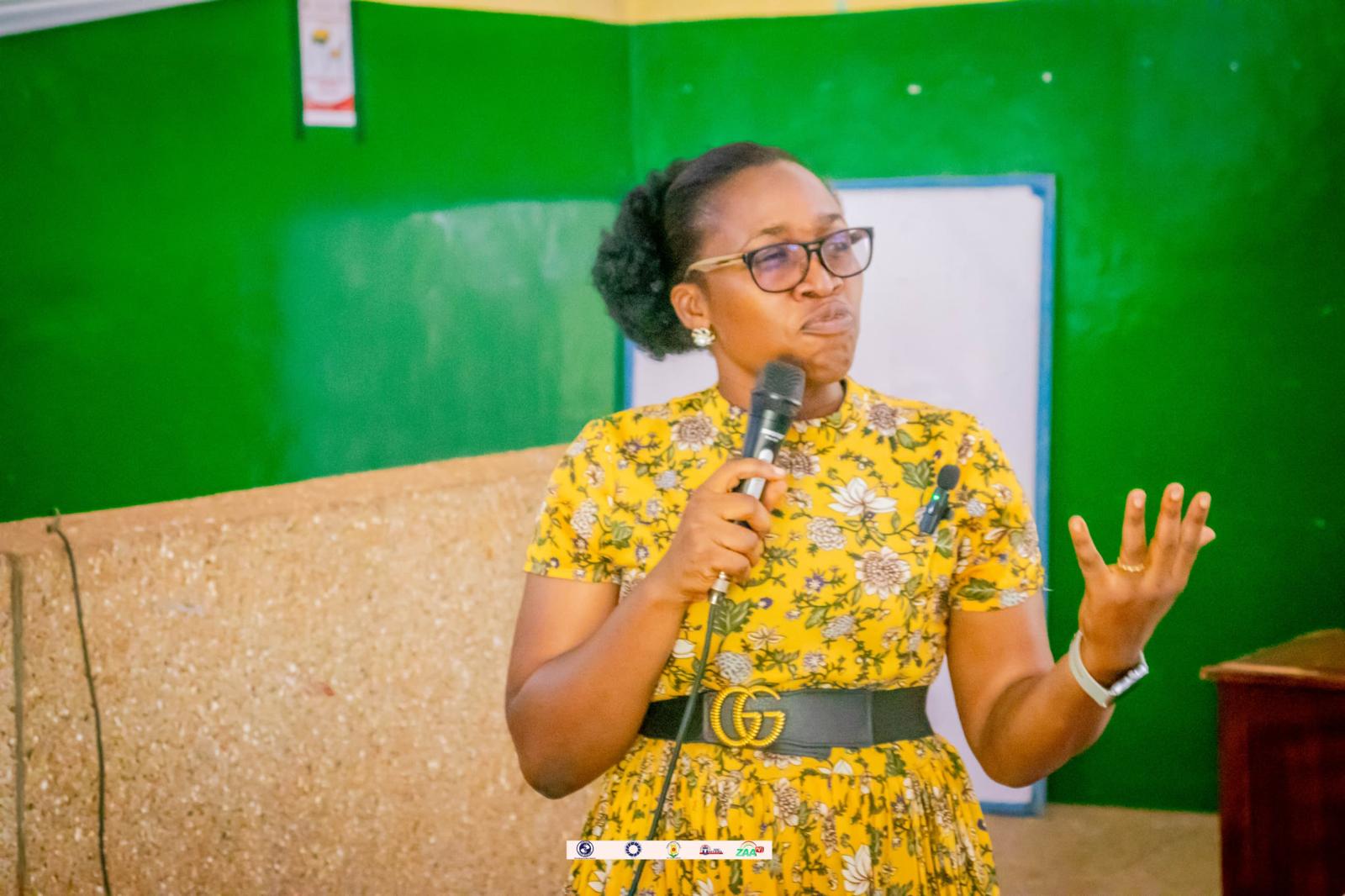
She raised concerns about the cyclical nature of the drug problem in Tamale, stating that it is not only damaging the lives of young people but is also driving investors away from the community. The issue has led to a greater vulnerability to exploitation by terrorists and sexual traffickers, further compounding the already precarious situation of the youth. In her presentation, Dr. Abakisi stressed that the future aspirations of these young people are at risk, with their potential being severely compromised by their involvement in drug abuse.
Dr. Abakisi also touched on the immense financial burden associated with treating drug addiction. She noted that even traditional systems of help-seeking have become expensive, making it difficult for those in need to access adequate care. Beyond individual suffering, she highlighted the broader impact of drug abuse on the community, including poor development, increased crime rates, a rise in infectious diseases, and overall economic decline.
Addressing the national implications, Dr. Abakisi pointed out that drug abuse leads to a significant loss of productivity, while the cost of medical services required to treat addiction and its related health problems places a heavy strain on the healthcare system.
In conclusion, Dr. Abakisi identified some of the telltale signs of drug addiction, such as noticeable behavioral changes, increased aggression, risk-taking behaviors, and frequent legal troubles. Despite the magnitude of the issue, she ended on a hopeful note, stating that while the drug menace is a social crisis, it can be defeated through a collective, concerted effort from all stakeholders.
After the first presentation, the MC, Alhaji AB, called for an enthusiastic round of applause for Dr. Elsie Abakisi, commending her insightful contribution. He then took a moment to caution the participants about the dangers of drug abuse, urging them to stay away from substances that could negatively affect their lives and futures.
The MC also acknowledged some of the dignitaries whose presence had just been noted, including the Diema Naa, the representative of the Regional Director for Health Services, Dr. Takyi, as well as Dr. Arnold Mashoud. He further reminded participants to carefully note down their questions, as a forum for questions and answers would be held after all the presentations.
To transition smoothly into the next segment of the program, the MC introduced the second speaker of the day, Mr. Peter Mintir Amadu. He described Mr. Amadu as a Clinical Psychologist, a lecturer, and the Head of the Mental Health Department at the University for Development Studies (UDS). In addition to these roles, Mr. Amadu is a seasoned researcher and the Executive Director and founder of the Total Life Enhancement Centre Ghana. His diverse expertise in mental health and leadership added an extra layer of anticipation to the forthcoming presentation.
Mr. Peter Mintir Amadu began his presentation by thanking the audience and the MC for the opportunity to share his insights. He introduced the participants to key concepts related to empowering the youth for a brighter future, stressing the importance of collective efforts. He referenced recent efforts in this direction, including the celebration of the Tamale edition of International Youth Day, which focused on the theme "Youth Digital Pathways for Sustainable Development." He emphasized that the youth need support and guidance to create a better future for themselves.
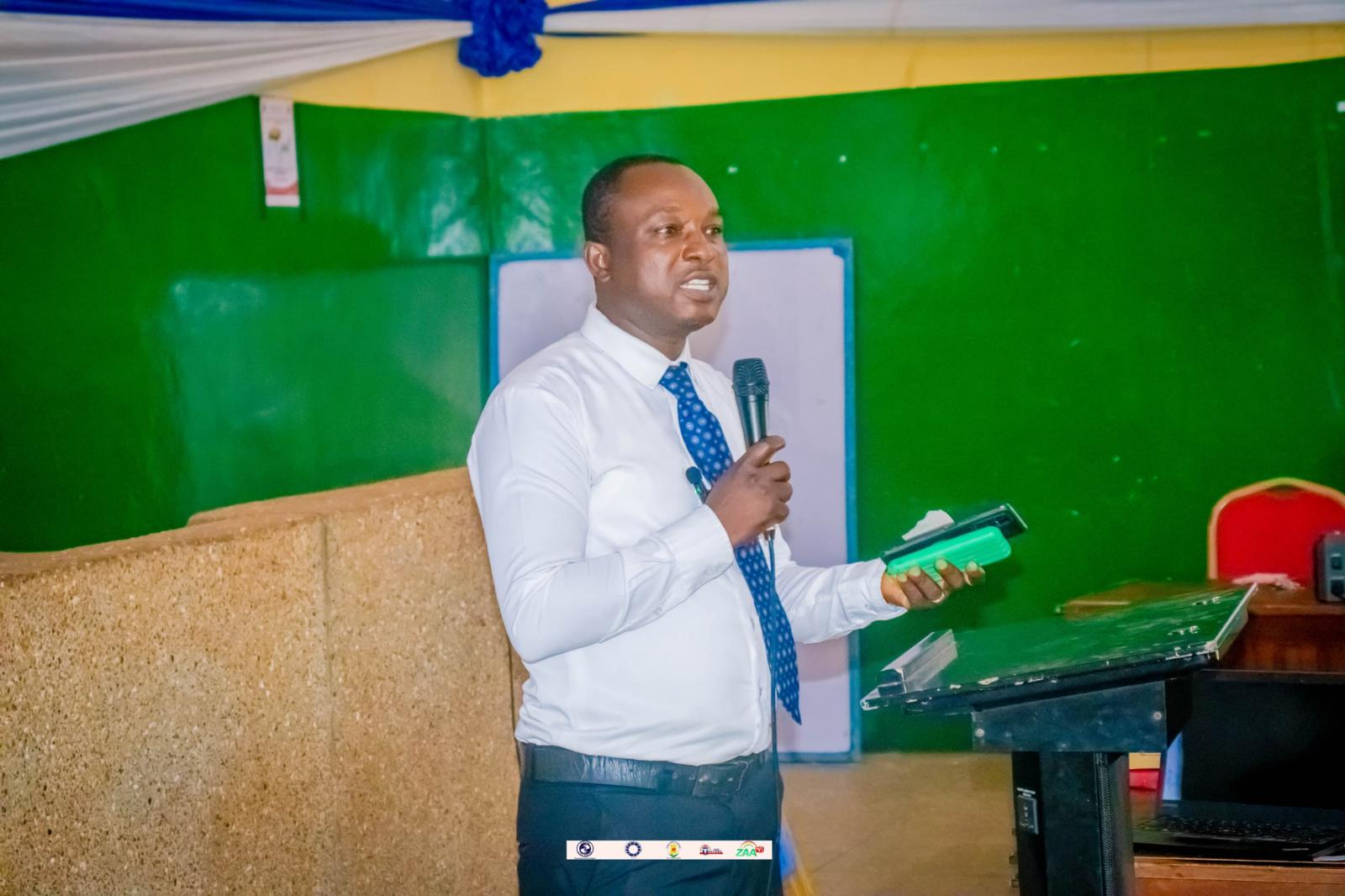
Moving into the heart of his presentation, Mr. Amadu provided statistics from the United Nations Office on Drugs and Crime (UNODC), stating that 270 million people worldwide abuse drugs, and approximately 70% of them are young people. He stressed that these numbers represent not just statistics but real lives being wasted. He then provided a Ghanaian perspective, noting that 55% of youth involved in substance abuse had their first experience with marijuana while in school. Mr. Amadu attributed the rise in drug use to factors such as parental issues and academic pressures.
Mr. Amadu also shared findings from a study he led in Tamale, Northern Ghana, which revealed that substances like shisha, tramadol, and alcohol were the most abused by the youth in the region. Notably, he pointed out that young women were the leading abusers of shisha. According to his study, 70% of respondents said they were introduced to these substances by friends, with parental issues, curiosity, and peer pressure also playing significant roles.
In outlining effective strategies for managing substance abuse, Mr. Amadu highlighted the importance of rehabilitation, advocacy, policy reform, life skills development, and the role of the media in creating awareness. He lamented the low level of knowledge about drug abuse within the community and stressed the need for early intervention and counseling services, coining the concept "catch them and manage them." He advocated for community-based interventions, where addicts could be treated and managed within their communities, as opposed to punitive measures that might scare individuals away from seeking help.
Another critical strategy Mr. Amadu emphasized was strengthening social bonds, questioning why society had become so individualistic. On policy, he noted that while Ghana has good policies in place, they are not enforced strongly enough to deter those profiting from the destruction of the youth. He also called for life skills training as a means to support some of the youth involved in substance abuse, particularly those in ghettos, where solidarity is strong. He warned that if society does not demonstrate enough love and support, the ghettos will continue to claim more young lives.
On the role of the media, Mr. Amadu urged them to act as collaborators in raising awareness about the dangers of drug abuse. He further advocated for positive engagement of the youth, including enhancing their assertiveness and coping mechanisms. He then introduced a framework he has been championing, known as the "ART" approach—Advocacy, Rehabilitation, and Therapy. Mr. Amadu described the ART module as a potential game-changer in combating drug abuse.
He commended youth leaders such as Diema Naa and others for their advocacy in calling for a fully resourced rehabilitation center for the Northern Region. In conclusion, Mr. Amadu encouraged participants to get involved by volunteering in their communities to support the fight against drug abuse.
This presentation was a powerful call to action, urging everyone to play a part in helping the youth overcome the scourge of drug addiction.
The MC reemphasized the advocacy aspect of the presentation, calling on stakeholders within the education sector to take proactive measures, as education is key to curbing the drug menace. He also advised participants to distance themselves from bad influences, urging them to make better choices for their future. In a heartfelt appeal, the MC called on the Regional Director of Health to consider incorporating some of the recommendations proposed by Mr. Amadu into their programs and initiatives.
To lighten the mood, the MC then guided participants through a series of stretching exercises to prepare them for the next activity. Unfortunately, the scheduled educational videos were canceled due to technical difficulties. Without missing a beat, the MC transitioned to the next item on the agenda, introducing Abdul Hakeem Genius to entertain the audience with his poetry recitals.
The poem delivered by Abdul Hakeem centered around the concept of drug abuse, aptly titled "I Was Once Innocent." His moving recital vividly captured the transformation of a young individual, once pure and full of potential, who gradually fell into the grip of addiction. The poem explored the emotional, physical, and psychological toll that drugs can have, painting a haunting picture of innocence lost to the dangerous allure of substance abuse. His performance resonated deeply with the audience, reinforcing the urgent message of the forum.
The MC introduced the final speaker for the day, Dr. Arnold Mashud Abukari, highlighting his impressive credentials. Dr. Mashud is the Head of the Marketing Department at Tamale Technical University, a Northern Youth Achiever Award winner, and has been named among the 100 Most Influential People in Tamale. A multi-faceted individual, Dr. Mashud is a cybersecurity expert, blogger, public speaker, event organizer, entrepreneur, and author of notable works such as Business Cake and Digital Colonialism. He holds a PhD in Computer Science and Mathematics, and his vast experience spans various industries including technology, education, and oil and gas.
Dr. Mashud began his presentation by commending the dignitaries present, remarking on the significance of their diverse backgrounds. He then shared his personal journey, describing how financial constraints during his youth prevented him from completing his final year of Senior High School. At the time, he only needed GHS 14 to pay his fees, which forced him into manual labor jobs, including shoemaking. He stressed the importance of parental responsibility in supporting their children's education to avoid similar struggles.
Dr. Mashud highlighted resilience as the key trait that carried him through these difficult times. Transitioning to the main theme of his presentation, he emphasized the vital role of Information and Communication Technology (ICT) in today’s economy. He explained that in the current digital age, many prefer to engage in business from the comfort of their homes, and the traditional ways of doing things are no longer sufficient without the integration of technology. Even religious leaders now use digital platforms to spread their messages.
He pointed out that a lack of digital literacy can be a significant barrier, denying individuals the opportunity to harness these tools for income generation. Dr. Mashud expressed concern that the youth, instead of using technology for productive purposes, often focus on negative activities, such as high engagement with pornographic sites. He urged them to shift their focus toward more constructive uses of technology.
Dr. Mashud applauded the African Life Center for organizing the program, making a passionate appeal for more initiatives like this in the future. He cited Sustainable Development Goal (SDG) 17, which emphasizes the role of technology in combating climate change, as a further argument for embracing ICT.
Moving into practical advice, Dr. Mashud encouraged participants to explore digital marketing by creating accounts on platforms such as Facebook to advertise their products. He explained the importance of building a strong online presence and establishing a reputable digital image, which could enhance one’s career prospects. He linked education and awareness creation directly to the digital space, noting that many companies now evaluate an individual's social media following before hiring or engaging in contracts.
He elaborated on how different digital platforms serve distinct communities: for example, TikTok and Instagram work well for multimedia content, while X (formerly Twitter) is more suitable for political engagement. Dr. Mashud warned about the potential risks in the digital space, such as malicious apps, and advised participants to be vigilant and protect their devices from hackers. He pointed out several indicators of possible threats to their gadgets and provided tips for safeguarding their digital assets.
In conclusion, Dr. Mashud led the participants in a pledge to leverage digital tools to enhance productivity and contribute to the economic growth of the country. The audience applauded him for the valuable insights and practical strategies he shared.
Following the third presentation, the North American Youth Chief, Diema Naa, took the stage. He began by acknowledging the presence of the dignitaries and expressing his joy at returning home for a brief visit. He also reflected on the resilience demonstrated by Dr. Mashud, echoing some of the challenges the speaker had faced.
On the topic of drug abuse, the Youth Chief shared a personal and somber story about a classmate who had fallen into drug addiction and was now suffering from severe health complications. He used this example to illustrate the devastating consequences of substance abuse and the urgent need for intervention.
The Diema Naa applauded African Life Center for organizing the forum and lamented the drug crisis in the Northern Region. He emphasized the need for a collective response, calling on chiefs, imams, pastors, and political leaders to unite in addressing the problem. He was particularly critical of politicians, accusing them of remaining silent on the issue for too long.
In a visionary appeal, the Youth Chief urged the use of ICT tools to combat the drug trade. He suggested that experts like Dr. Mashud could explore the possibility of developing apps to track the sale of illicit drugs, proposing that everyone should become an agent of change in the fight against substance abuse.
Turning to the role of families, he stressed that parents must show love and support to their children to prevent them from falling into the trap of drug addiction. He pledged to use his influence and network to rally support for a fully functional rehabilitation center in the Northern Region, declaring the drug crisis a matter of national security.
The Youth Chief concluded his address by calling for love and compassion towards those battling addiction, stressing that the fight against drugs must begin immediately—there is no time to wait.
The MC, deeply moved by the Youth Chief’s speech, thanked him for his bold words and his commitment to supporting the youth through rehabilitation. The MC then opened the floor for questions from the participants, based on the three presentations.
The Question and Answer session that followed was highly engaging, with participants raising a variety of questions based on the three presentations. Each presenter took the time to address the concerns raised, providing thoughtful and detailed responses. The excitement in the room was palpable, as the audience showed great interest in the topics discussed.
Notably, Rev. Fr. Boris, a distinguished personality present at the event, actively participated by offering answers and additional insights to some of the questions posed. His involvement added a unique perspective to the discussions, enriching the dialogue between the presenters and the participants.
The session proved to be a highlight of the event, with the lively exchange of ideas leaving participants more informed and motivated.
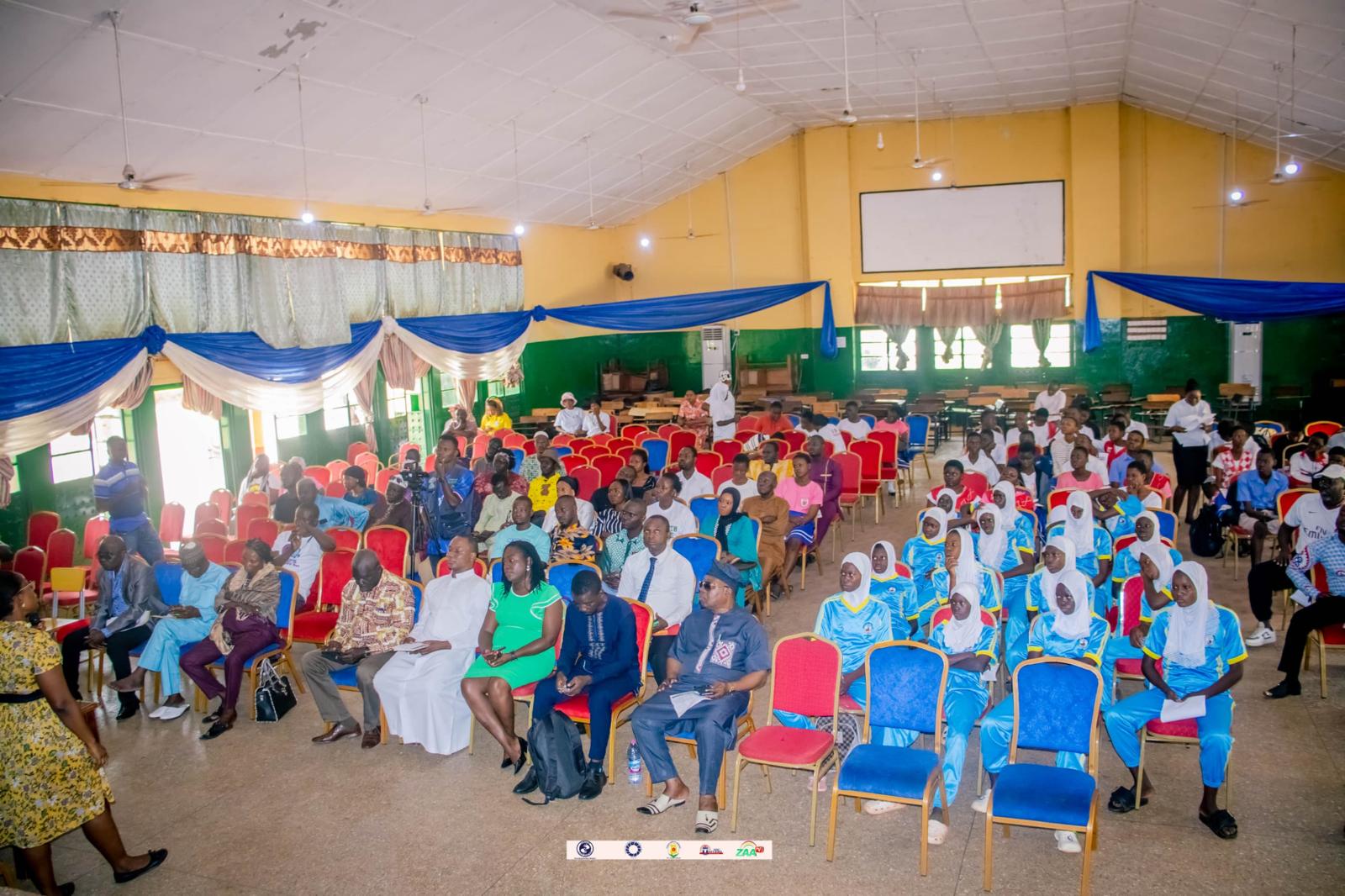
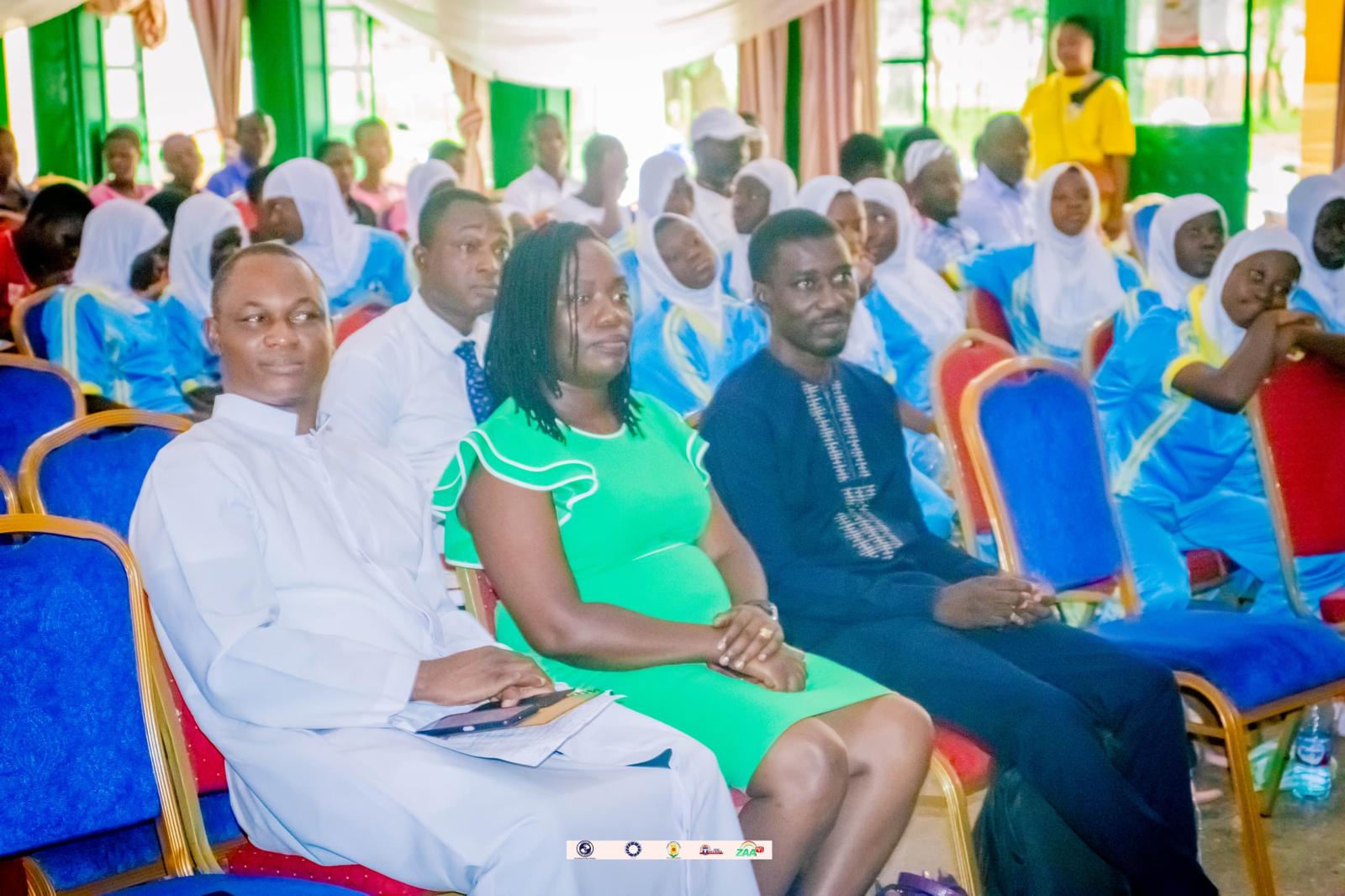
Representing the Regional Director of Health, the Deputy Regional Director in charge of Mental Health delivered a compelling message, emphasizing that addiction poses a significant threat not only to the individual but also to the family, the community, and the nation at large. He acknowledged the devastating impact of substance abuse on societal well-being and urged the participants to reflect on its far-reaching consequences.
In addressing strategies to combat the drug menace, he proposed that the Ghana Education Service should take a more proactive role by leveraging debate and drama clubs in schools as platforms for raising awareness. These clubs, he explained, can play a vital role in engaging students creatively, enabling them to better understand the dangers of substance abuse while advocating for a drug-free environment. He also emphasized the importance of mentorship programs, where experienced individuals can guide and inspire the youth to make better life choices and avoid the traps of addiction.
On the healthcare front, the Deputy Director encouraged participants to seek professional help at health facilities for early intervention. He reassured the audience that the Ghana Health Service is intensifying its health promotion activities, particularly concerning the prevention and treatment of addiction. He called for stronger collaboration between the Ghana Health Service and NGOs, urging these organizations to work hand in hand with health authorities to fight the drug menace more effectively.
In his closing remarks, he extended warm felicitations from the Regional Director of Health, Dr. Abdulai Abukari, commending the organizers for creating a platform to discuss such a critical issue and reiterating the Ghana Health Service’s commitment to supporting initiatives that aim to combat addiction. His message left the audience with a clear call to action, urging every stakeholder to play their part in addressing this national challenge
Mr. Sule Salifu, a respected former headmaster of the Tamale Senior High School (TAMASCO), expressed his heartfelt appreciation to the organizers of the forum. He acknowledged the significance of addressing the issue of drug abuse, noting that this is not the first time the menace has reared its ugly head in society. Drawing on his extensive experience in education, he reflected on the past and lamented how today’s youth have strayed from the core values and morals that once guided society.
He expressed concern over the alarming trend where many young students turn to drugs, falsely believing that these substances enhance their learning abilities. Mr. Sule firmly advised students to explore healthier and more effective methods of learning that do not compromise their physical and mental well-being. He emphasized that success in education comes from discipline, dedication, and focus, not from relying on harmful substances.
In his closing remarks, Mr. Sule commended the efforts of the African Life Center (ALC) for their tireless work in tackling the drug issue head-on. He praised their initiative, noting that such forums and outreach programs are crucial in reshaping the minds of the youth and guiding them toward positive behavior. His message resonated strongly with the audience, urging them to uphold the values of hard work and moral integrity in the fight against drug abuse.
The Regional Coordinating Director addressed the audience on behalf of the Mayor of Tamale, explaining that the Mayor's absence was due to other pressing engagements. He conveyed the Mayor's support for the forum and emphasized the importance of the gathering, which was not just about discussing the dangers of drugs but also about finding actionable solutions to combat the menace.
In his remarks, the Coordinating Director highlighted the severe impact drug abuse has on various aspects of life, stressing that it damages both physical health and mental well-being, ultimately destroying dreams and aspirations. He urged participants to consider the ripple effect of drug abuse on families, communities, and the nation as a whole, emphasizing the need for proactive measures to prevent these negative outcomes.
He also touched on some of the key triggers that lead to drug abuse, such as peer pressure, unemployment, and lack of awareness. He called on all stakeholders, including parents, educators, religious leaders, and community members, to join forces in fighting this social ill. In addressing government efforts, he mentioned the continuous empowerment of the Narcotics Control Board (NACOB) to tackle drug-related crimes. He also highlighted the government’s collaboration with international bodies, such as the United Nations Office on Drugs and Crime (UNODC), in efforts to combat drug trafficking across the country.
On the local level, the Coordinating Director pointed out how the Metropolitan Assembly has been working closely with law enforcement agencies, particularly the Ghana Police Service, to arrest individuals involved in drug abuse. He also assured the public that the assembly is actively collaborating with the Food and Drugs Authority (FDA) to regulate and prevent the proliferation of dangerous substances.
In his closing remarks, he made a passionate appeal to the youth, emphasizing that the fight against drugs is not just about personal well-being but also about securing a brighter future for the country. He expressed confidence that with unity, determination, and collective action, the drug menace could be conquered, reminding the youth that they hold the power to effect change and protect their future.
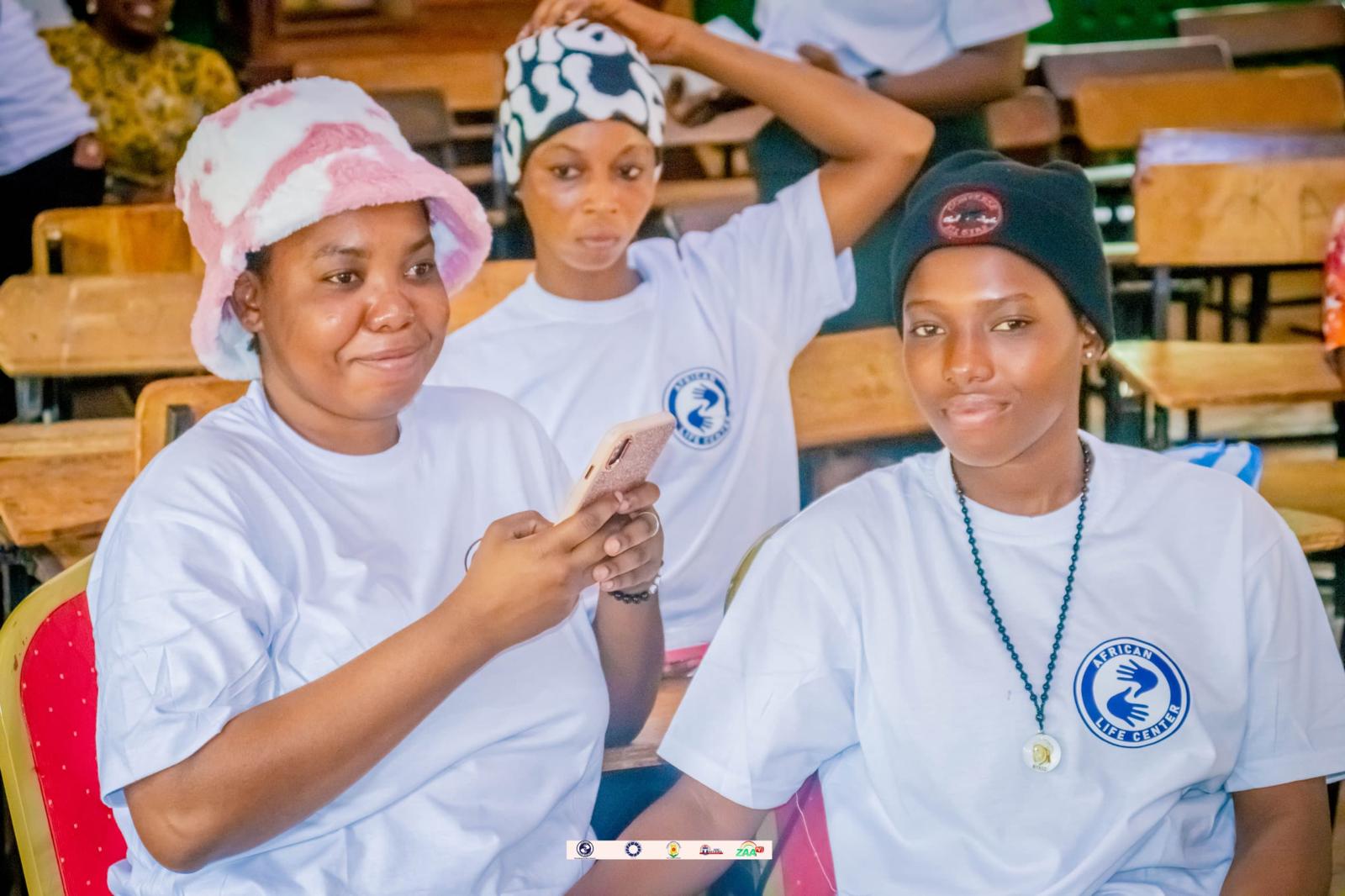
The National Director of African Life Center (ALC) expressed his excitement over the success of the program, commending all the participants for their active involvement. He urged the youth to position themselves effectively for the future, emphasizing that the senior generation needs to trust that they are ready to take on the responsibility of leading. He highlighted the importance of this generational transition, noting that the youth are indeed the face of the future.
Addressing his concern about the rise in social vices among the youth, the National Director advised against engaging in cyber fraud and other harmful activities. He encouraged the youth to focus on making a decent living, as indulging in illegal practices would not lead to a sustainable or fulfilling life. His message was a call for the youth to choose the path of integrity and hard work, reassuring them that success can be achieved through perseverance and ethical behavior.
In his concluding remarks, he expressed his gratitude to all the stakeholders and dignitaries for honoring ALC's invitation and contributing to the forum's success. Following his speech, participants were treated to lunch and snacks, and the post-program evaluation questionnaire were distributed to the participants for them to assess the impact of the forum.
The regional Youth Forum organized by African Life Center (ALC), in collaboration with the Total Life Enhancement Centre Ghana, the Ghana Health Service, and Zaa Multimedia, was a resounding success. The forum provided an essential platform for addressing the alarming issue of drug abuse among the youth in Northern Ghana, drawing attention to its negative impact on individuals, families, and communities. Through insightful presentations, the participants were educated on the dangers of substance abuse and equipped with practical strategies for prevention and rehabilitation.
Dr. Elsie Abakisi, in her presentation, highlighted the far-reaching effects of drug addiction on mental health and national productivity. Mr. Peter Amadu highlighted strategies for prevention of drug abuse, stating the ART approach to combating the menace. Dr. Arnold Mashud Abukari followed with a compelling discussion on leveraging ICT for income generation, emphasizing the importance of embracing technology as a tool for economic empowerment. The forum further featured key messages from the Ghana Health Service, the Mayor of Tamale (represented by the Regional Coordinating Director), and notable educators such as Mr. Sule Salifu, each adding their unique perspectives on tackling drug abuse through education, mentorship, and collaboration.
The forum’s interactive Question and Answer session allowed participants to engage directly with the experts, fostering a deeper understanding of the subject matter. The participation of individuals such as Rev. Fr. Paul Boris in responding to questions enriched the dialogue and reinforced the significance of a collective approach to combating the drug menace.
In his closing remarks, the National Director of ALC reinforced the call to action for the youth to rise above social vices and focus on building a future rooted in integrity and hard work. He thanked all stakeholders for their unwavering support and participation, expressing optimism that the lessons from the forum would ignite meaningful change.
The successful completion of the event, including the collection of post-program feedback from the audience, and the provision of meals, cemented the forum’s impact. It stands as a vital step towards creating awareness and inspiring youth empowerment in the ongoing battle against drug abuse in Northern Ghana. The collaborative effort of government institutions, civil society organizations, and educational leaders showcased the strength of unity in addressing such critical social issues, with a shared vision of nurturing a healthier, more resilient generation.
Prepared by
Divine Davor
Mohammed Nasir Abubakari
Supervised/Reviewed by
Dr. Abdul Nashirudeen Mumuni (ALC Ghana)
